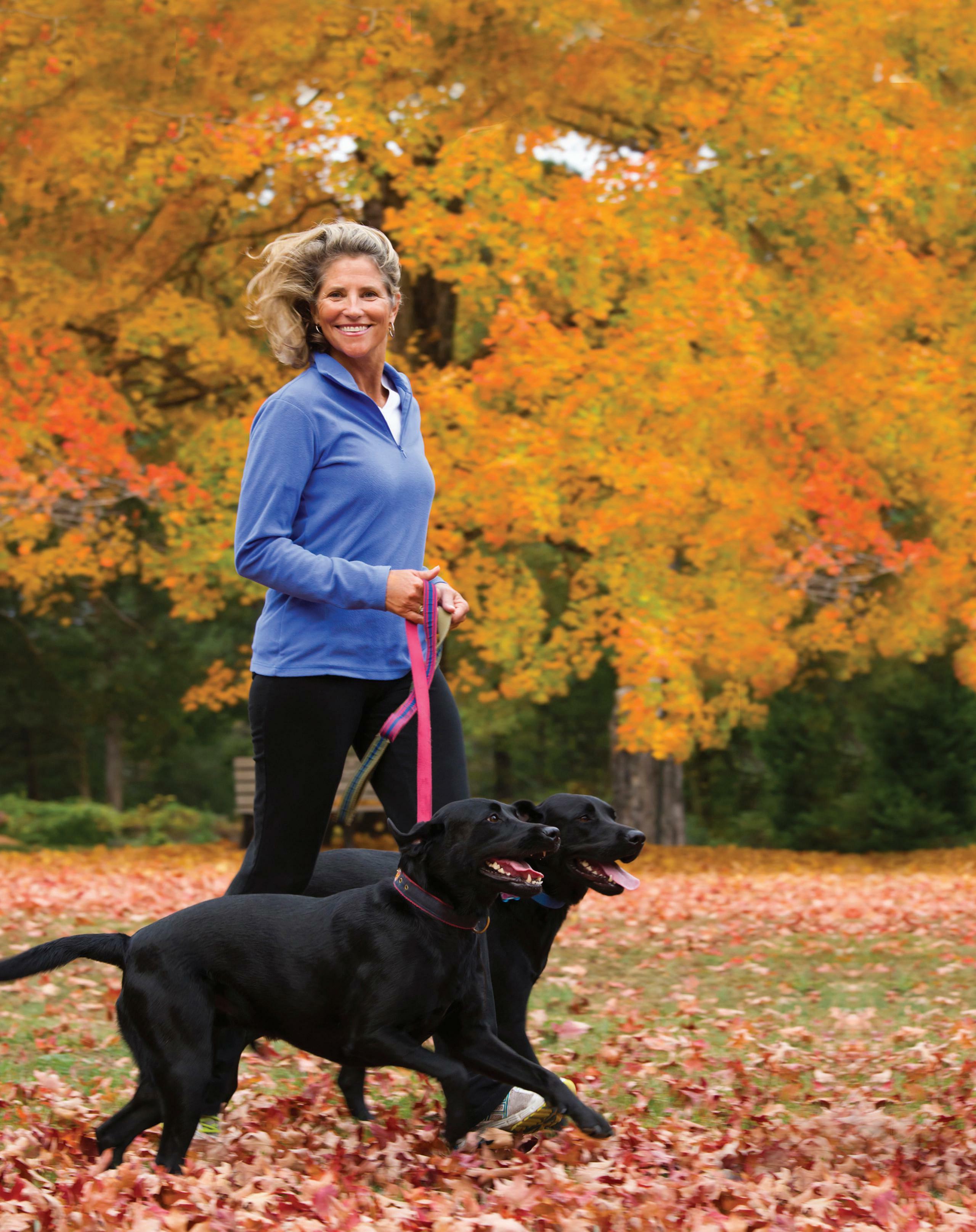



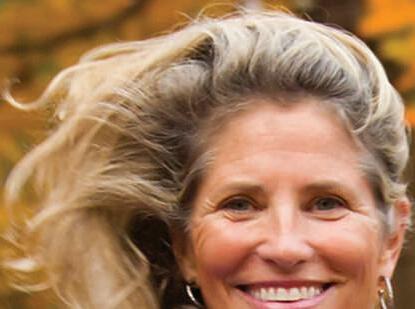
healthytogether IS SUGAR ALL BAD? COLORECTAL CANCER: WHAT YOU NEED TO KNOW EAT WELL ON A BUDGET Fall 2022A Publication of ROBERT WOOD JOHNSON UNIVERSITY HOSPITAL RAHWAY HELPING PATIENTS NAVIGATE CANCER
“Being recognized nationally for excellence is an important validation. That’s why I am delighted that Rutgers Cancer Institute of New Jersey together with RWJBarnabas Health achieved High Performing status in the adult specialty category for cancer in the most recent U.S. News & World Report Best Hospitals survey. This demonstrates the extraordinary, multidisciplinary care we provide for our communities, informed by groundbreaking cancer research, scientific leadership and transformational discoveries alongside exceptional patient experience.”
BARRY H. OSTROWSKY | Chief Executive Officer, RWJBarnabas Health
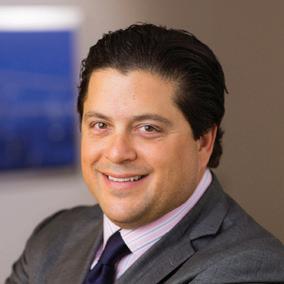
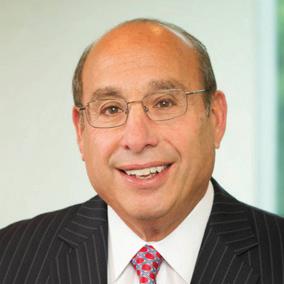
“As New Jersey’s largest and leading academic healthcare system, we pride ourselves on providing exceptional care for our communities together with our partners such as Rutgers Cancer Institute of New Jersey, the state’s only NCIDesignated Comprehensive Cancer Center. We congratulate Rutgers Cancer Institute on receiving the highest score in New Jersey in the adult specialty category for cancer in U.S. News & World Report’s annual Best Hospitals survey. This validates the exceptional level of cancer care we provide across our health system.”
MARK E. MANIGAN | President, RWJBarnabas Health
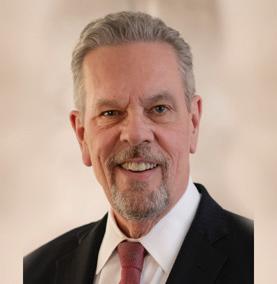
“Being part of RWJBarnabas Health means that our patients have access to Rutgers Cancer Institute of New Jersey (CINJ), the state’s only National Cancer Institute-Designated Comprehensive Cancer Center. CINJ offers groundbreaking research, clinical excellence and an exceptional patient experience. Having this nationally recognized resource as a partner is great for our patients and our community.”
Robert
THE ONCOLOGY NURSE NAVIGATION PROGRAM COMES TO RWJUH RAHWAY
Fiordaliza Gomez, BA, BSN, RN, has joined RWJUH Rahway as its new Oncology Nurse Navigator. (To learn about RWJBH’s Oncology Nurse Navigation Program, turn to p.11.) Fiordaliza (Liza, pronounced “ Lisa ” ) came to RWJUH Rahway from RWJUH New Brunswick, where she worked in the inpatient Hematology Oncology department.
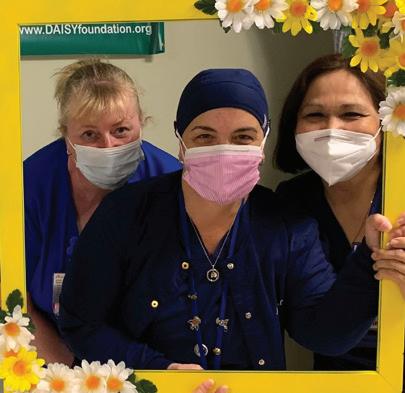

Liza’s role as a navigator is to help patients with cancer understand their diagnosis and treatment options, including clinical trials. She will help them learn about available resources, services and how to access them, provide educational materials and serve as an advocate, helping to address and remove barriers to care, if they arise.
As a navigator, Liza will ensure the seamless coordination of care between all members of a patient’s healthcare team, even if team members are at various locations, and work to improve communications between the patient and the team.
Liza holds a BA in psychology from Rutgers University and a BSN from Chamberlain College of Nursing. Before becoming a nurse, she had a career in public health, where she focused on community mobilization and reducing health disparities through screenings, education and risk reduction.
“ It’s my calling to use my expertise and passion to advocate for, educate and empower patients to take an active role in their healthcare, ” says Liza.
RWJUH RAHWAY NURSE MARISOL MATEO RECOGNIZED FOR EXCELLENCE
Nurses at RWJUH Rahway are recognized in several ways for the excellent work they do. Recently, RWJUH Rahway Infusion Center Nurse Marisol Mateo was presented with the DAISY Award, an international award that celebrates extraordinary nurses. She was nominated by a patient’s wife, who praised Mateo for her kind, attentive and intuitive care, not only for the patient but for his family as well. The DAISY Award for Extraordinary Nurses is an ongoing recognition program that honors nurses for their dedication, skill, compassion and excellent care.
MESSAGES FROM LEADERSHIP
Wood Johnson University Hospital Rahway complies with applicable federal civil rights laws and does not discriminate on the basis of race, color, national origin, age, disability or sex. For more information, see link on our home page at www.rwjbh.org/rahway. RWJUH Rahway cumple con las leyes federales de derechos civiles aplicables y no discrimina por motivos de raza, color, nacionalidad, edad, discapacidad o sexo. ATENCIÓN: Si usted habla español, servicios de asistencia lingüística, de forma gratuita, están disponibles para usted. Llame al 732.499.6136. RWJUH Rahway konfòm ak lwa sou dwa sivil federal ki aplikab yo e li pa fè diskriminasyon sou baz ras, koulè, peyi orijin, laj, enfimite oswa sèks. ATANSYON: Si w pale Kreyòl Ayisyen, gen sèvis èd pou lang ki disponib gratis pou ou. Rele 732.499.6136. For issues regarding delivery of Healthy Together, please write to HTcirculation@wainscotmedia.com. 865 Stone Street, Rahway, NJ 07065 732.499.6118 | www.rwjbh.org/rahway @RWJRahway @RWJRahway CONNECT WITH US ON
HEALTH NEWSHEALTH NEWS
KIRK C. TICE | President and Chief Executive Officer, Robert Wood Johnson University Hospital Rahway
RWJBarnabas Health
Robert Wood Johnson University Hospital Rahway
Healthy Together | 2 Fall 2022
healthy
2. WELCOME LETTER. A community update from our CEOs.
4. THE LOWDOWN ON SUGAR. The sweet stuff we love to hate—and hate to love.

6. COLORECTAL CANCER. What you need to know.
8. MAKING GREAT STRIDES. Ankle replacement surgery after years of unrelenting pain.
4
10. COPING WITH HOLIDAY DEPRESSION. How to move through the melancholy that often comes with the holidays.
12. NAVIGATING YOUR CANCER JOURNEY. RWJBH’s Nurse Navigation Program provides support, guidance and compassion.
14. ONE STEP AT A TIME. How the physical therapy team at Children’s Specialized Hospital helped a boy with spina bifida.
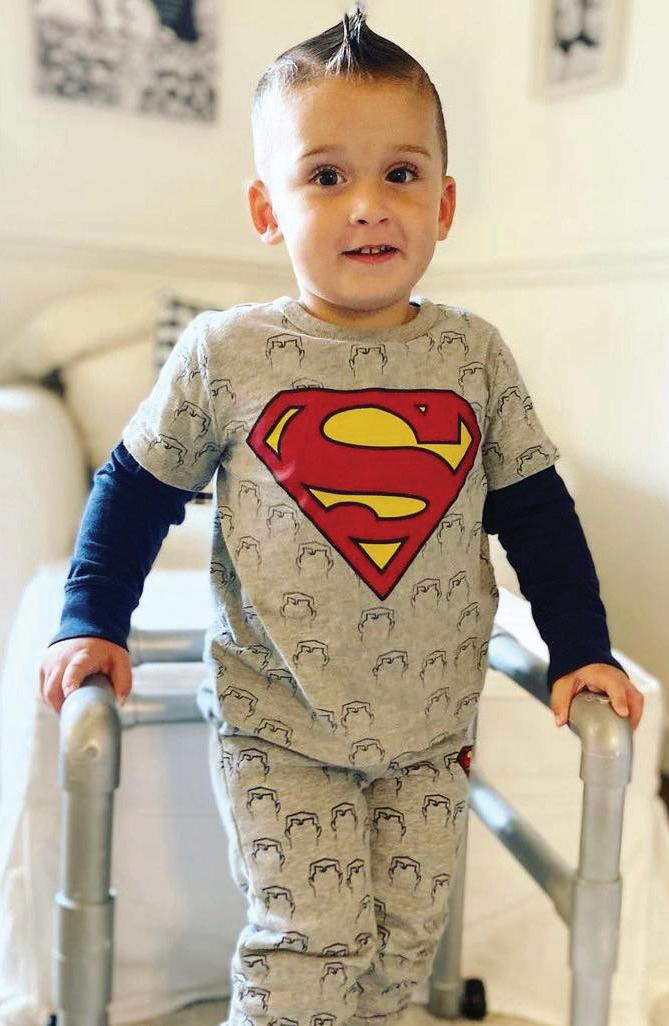
16. THE LOWDOWN ON LOWDOSE ASPIRIN. The latest guidelines for heart attack and stroke prevention.
6

21
17. EAT WELL FOR LESS. Fill your fridge without breaking the bank.

20. IS IT COPD OR CONGESTIVE HEART FAILURE? How to tell the difference.
21. KEEPING HEARTS HEALTHY.
RWJUH Rahway’s new cardiac clinic.
22. GENEROSITY AND SUPPORT FOR RWJUH RAHWAY. A new memorial garden, a 5K race and a women’s golf classic.

23. COMMUNITY CALENDAR. A roundup of education and support groups.
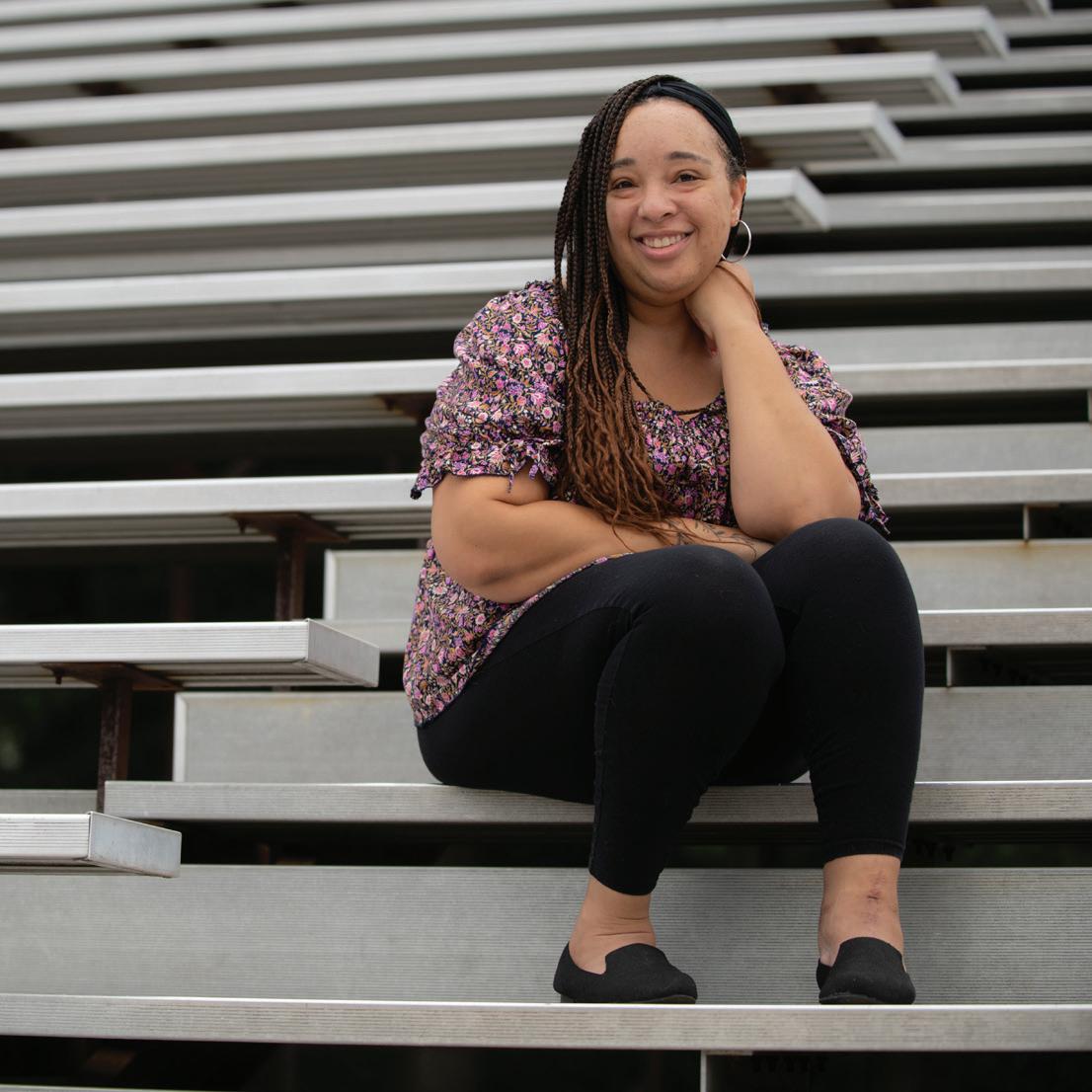
8 22 contents FALL 2022
together
17
14
Robert Wood Johnson University Hospital Rahway RWJBH.ORG/RAHWAY 3
THE LOWDOWN ON SUGAR
EVERYTHING YOU NEED TO KNOW ABOUT THE SWEET STUFF WE LOVE TO HATE—AND HATE TO LOVE
We all know that sugar is bad for us—right? Not necessarily. Sugar is not inherently bad, but it is often misunderstood. “Sugar is essential in the sense that carbohydrates—the main source of energy in our bodies—are made up of sugar/starch that is broken down into glucose,” says Lindsay Whelan, MS, RDN, a clinical dietitian at Robert Wood Johnson University Hospital (RWJUH) Rahway. “That’s our blood

sugar, and it’s essential.”
So why the bad rap? It’s largely because, not only do we consume too much sugar, but the sugar we consume too often comes from sources that have little or no nutritional value—like soda and candy, packaged cookies and cakes, and processed foods with “added sugars”—rather than from nutritious sources, such as whole grains. “Sugar that comes from a nutritious source can act as quality energy for our bodies,” says
Whelan. “When people talk about ‘good’ sugars and ‘bad’ sugars, they are usually referring to the sources of the sugar.”
Choosing the wrong sources of sugar is only part of the problem, however. The volume of sugar most Americans consume far exceeds recommended amounts. Though the American Heart Association recommends that women have no more than 24 grams (about six teaspoons) and men no more than 36 grams (nine teaspoons), the average
Healthy Together | 4 Fall 2022
American consumes 70 grams of sugar or more a day. Consuming too much and/ or the wrong kinds of sugar, including “added sugars,” can cause or contribute to inflammation, weight gain, high blood pressure, heart disease, diabetes and other chronic health conditions.
Whelan encourages everyone to be aware of how much and what kinds of sugar they’re consuming. “People with diabetes should pay even closer attention and monitor their intake more strictly,” she says.
HOW TO LIMIT YOUR INTAKE
In addition to avoiding obvious sources (like candy, sweetened soft drinks, and sweet baked goods), be sure to read food labels, since processed foods are a major source of added sugar. You’ll see sugar listed on labels of things you may not think of as sweet—like bottled salad dressing. Try to skip or limit those foods.
WHAT IS SUGAR?
The chemical name for sugar is sucrose, a simple carbohydrate that’s produced naturally in plants, including fruits and vegetables. Sucrose is also the sugar we spoon into our coffee or tea and use in cookie dough and cake batter. Though when we speak of sugar, it’s the white refined sugar, aka “table sugar,” that we’re usually referring to, the fact is that sugars include a number of sweet-tasting, soluble carbohydrates that are often contained in or added to foods. The chemical names for these various sugars also end in “-ose.” Fructose, for example, is the natural sugar contained in fruits, while lactose is the sugar found in milk and other dairy products.
While sugar is, of course, used as a sweetener, many foods that contain sugar don’t taste sweet at all. These are carbohydrates that are converted to sugar (glucose) in the body. “Someone will say to me, ‘I don’t eat sugar,’” says Whelan. “But I say, ‘That’s not possible.’ If you eat a bowl of rice, a potato or a slice of bread, you’re eating sugar. All those foods will be broken down into sugar in the body.”
WHAT SUGAR DOES IN THE BODY
When people eat whole plant foods—complex carbohydrates like fruits and grains, which also contain fiber and/ or starch—the sugar is digested slowly along with other nutrients, providing the body with a steady source of energy. But when sugar is added to foods—such as sweet desserts that contain white flour or other refined carbohydrates—it’s digested quickly, which causes the level of sugar in the blood to rise rapidly, leading to energy spikes and quick crashes.
Though we need sugar for energy, some foods provide this energy better than others. “You don’t want to have a diet full of sweets and desserts, but you do want to have whole-grain bread, whole wheat pasta, brown rice, fruits— you need these types of carbohydrates and the foods that will be broken down to sugar in the body to help fuel yourself,” says Whelan.
TYPES OF SUGAR
Dietitians often refer to “natural” versus “added” sugar. But the term “natural” can be misleading. When dietitians talk about natural sugar, they’re referring to sugar that’s naturally occurring in food. A banana, for example, is sweet because it contains natural sugar. “Foods containing natural sugars can be nutritious and beneficial,” says Whelan. “They have so many other properties— vitamins, minerals, antioxidants, fiber. You want to include these in your diet.”
Other foods, including many processed foods, have sugar added to them, mainly for taste; it has little to no nutritional value. Whether it’s listed on labels as white sugar, brown sugar, turbinado sugar, demerara sugar, honey, molasses, maple syrup or another name, it’s still sugar and will act in the body the same way.
WHAT ARE “ADDED SUGARS?”
The more processed foods you buy, the more likely you are to encounter added sugars. However, you won’t necessarily see the term “added sugars” on food labels. Sometimes added sugars are just “sugar.” But sometimes, food labels will list them in their ingredients under one of their many names, including:

glucose
fructose
sucrose
lactose
maltose
• dextrose
• agave nectar
rice syrup
corn syrup
molasses
It pays to know sugar’s many names and guises and to look for them on food labels. Remember: regardless of the moniker, sugar by any other name is still sugar.
SMART SNACKING
Fruits are a great snack for people with diabetes. “But we suggest that people with diabetes don’t have fruit by itself,” she says. “A good rule of thumb for anyone with diabetes is to always have proteins or another source of fiber to help slow digestion and prevent spikes in blood sugar.
Some suggestions:
• A few berries with some nuts
Half a banana with some natural peanut butter
• Grapes with a slice of low-fat cheese

RWJUH Rahway’s outpatient dietitian can help with nutritional counseling for various medical conditions. A physician referral is required. To learn more, call 732.499.6210 .
•
•
•
•
•
•
•
•
•
Robert Wood Johnson University Hospital Rahway RWJBH.ORG/RAHWAY 5
COLORECTAL CANCER: WHAT YOU NEED TO KNOW
SCREENING CAN PREVENT CANCER OR DETECT IT


HIGHLY TREATABLE EARLY STAGES.
Colorectal cancer is among the most common cancers in both men and women, according to the American Cancer Society. In recent decades, the overall rate at which people are diagnosed with this potentially deadly disease has dropped due partly to increased screening. Yet colorectal cancer is also becoming more common among younger adults.

“Knowledge can be your firstDANIEL L. FEINGOLD, MD
line of defense against colorectal cancer,” says Daniel L. Feingold, MD, FASCRS, FACS, Chief of Colorectal Surgery in the Gastrointestinal Oncology Program at Rutgers Cancer Institute of New Jersey and Professor of Surgery at Rutgers Robert Wood Johnson Medical School. “Understanding colorectal cancer risks and how to reduce them can save lives.”
Dr. Feingold highlights key points that everyone should know.
What is colorectal cancer?






It’s a cancer that starts anywhere along the colon—that is, the large intestine—or rectum, both of which are in the lower


Robert
Wood Johnson University Hospital Rahway, in partnership with Rutgers Cancer Institute of New Jersey—the state’s only NCI-Designated Comprehensive Cancer Center—provide close-to-home access to the most advanced treatment options. Call 844.CANCERNJ or visit www.rwjbh.org/beatcancer.
portion of the digestive system. These cancers often start as pre-cancerous abnormal growths called polyps that over time can turn into colorectal cancer.
Why is detecting colorectal cancer early so significant?






If you’re diagnosed with colorectal cancer in its early stages, you have a high chance of being cured. Colonoscopy screening not only can detect polyps but can also remove them during the same procedure and prevent them from becoming cancer in the future. Screening improves your odds of surviving cancer or avoiding it altogether.

AT
Healthy Together | 6 Fall 2022
COMBATING COLORECTAL CANCER
The hope is that colonoscopy screening will prevent colorectal cancer. But in some cases, a colonoscopy and other measures such as a biopsy may result in a cancer diagnosis. Advanced treatments for colorectal cancer offer a good chance of significantly prolonging life. Treatment is individualized and targeted to each patient’s unique cancer.
Treatment options may include:
• SURGERY: Surgical removal of cancerous growths is usually performed using minimally invasive techniques like laparoscopy or robotic-assisted surgery and is one of the most effective treatments for colorectal cancer.
• HEMOTHERAPY: A variety of chemotherapy drugs can be administered to kill or shrink cancer at varying points during treatment depending on a patient’s disease, often in coordination with other therapies.
• RADIATION THERAPY: High-energy beams such as X-rays are used to destroy cancer cells. The timing, method, dosage and type of energy can be calibrated to achieve the greatest effect for a patient’s particular cancer.
• IMMUNOTHERAPY: Advanced therapies target specific functions of the immune response in ways that improve the body’s ability to recognize and attack cancer cells.
• PRECISION MEDICINE: Profiling a cancer’s specific makeup of genes and proteins can guide doctors to the most effective therapies.
THE BENEFITS OF CLINICAL TRIALS
If you’re diagnosed with cancer, participating in a cancer clinical trial may offer several advantages in addition to standard treatment. Through Robert Wood Johnson University Hospital Rahway’s partnership with Rutgers Cancer Institute of New Jersey, the state’s only NCI-Designated Comprehensive Cancer Center, patients have access to the latest clinical trials. Potential benefits include:
• Working with top specialists who conduct research and are highly knowledgeable about the latest treatments
• An opportunity to receive cuttingedge treatments not yet available to the general population that may help you live longer or improve quality of life
• Playing a meaningful role in a study that could help future patients
KEY SIGNS OF COLORECTAL CANCER
At what age should people start colorectal screening?
Men and women at average risk should begin colorectal screening at age 45.
Earlier testing may be appropriate for patients who have a family member with colorectal cancer or who have other risk factors such as inflammatory bowel disease.
What are options for screening?
The standard screening test for colorectal cancer is colonoscopy, in which a flexible, lighted tube is used to examine the entire colon and rectum. This test requires a laxative preparation and is performed under sedation.
Results are about 95 percent accurate. Screening colonoscopy is usually repeated every 10 years.
Alternatives to colonoscopy include minimally invasive CT colonography, sometimes called virtual colonoscopy, and stool-based exams in which you obtain a stool sample at home and mail it to a lab. Home-based tests aren’t as accurate as colonoscopy and must be performed once a year or every few years. If any of these tests suggest colorectal cancer, you’ll still need a colonoscopy, which is the gold standard.
If colonoscopy detects cancer, a wide range of treatment options are available.
Check with your doctor if you notice:
• A change in bowel habits such as diarrhea, constipation or narrowing of the stool that lasts more than a few days
• A sense of urgency or bowel fullness that isn’t relieved by a bowel movement
• Rectal bleeding
• Blood in the stool or dark stool
• Persistent abdominal discomfort such as cramps, gas or pain
• Unexplained weight loss
• Weakness or fatigue
To learn more about treatment for colorectal cancer at RWJBarnabas Health and Rutgers Cancer Institute of New Jersey, call 844.CANCERNJ or visit www.rwjbh.org/beatcancer .
Robert Wood Johnson University Hospital Rahway RWJBH.ORG/RAHWAY 7
MAKING GREAT STRIDES
When Christine Davis fell and broke her ankle in 2009, she couldn’t have imagined that she’d endure a 12-year-long odyssey of excruciating pain and limited mobility that would eventually become so unbearable, she’d sometimes sit in her car for hours rather than take a step, even crawling into her house to avoid putting pressure on her foot.
All of that changed in July 2021, when the 35-year-old
Plainfield resident underwent ankle replacement surgery at Robert Wood Johnson University Hospital (RWJUH) Rahway. “I’d love to be the spokesperson for it,” says Davis. “It’s the best decision I ever made.”
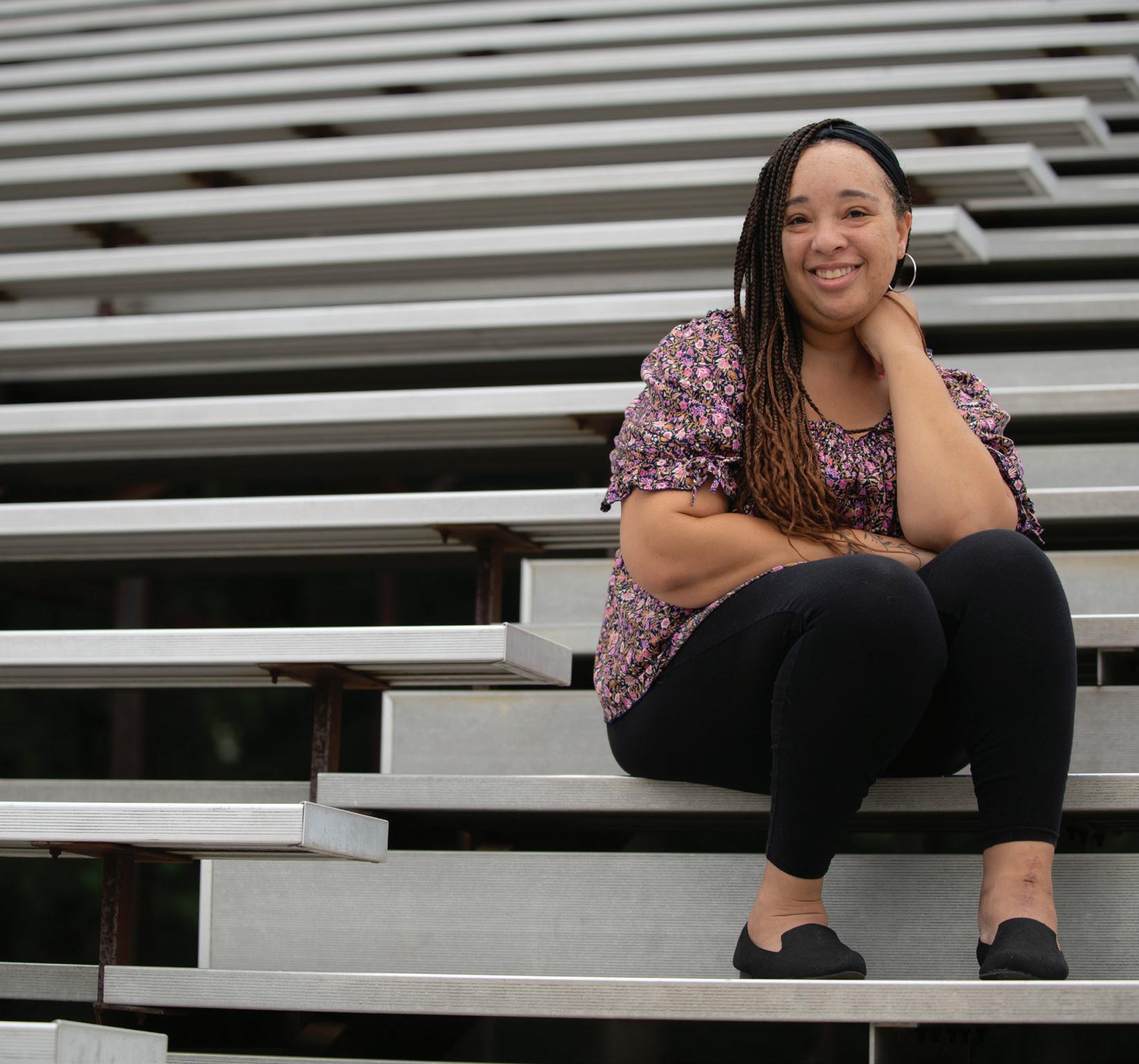
“Ten years ago, I wouldn’t have recommended it for someone her age,” says her surgeon, Chudi Mgbako, DPM, FACFAS. But advances in technology and materials have greatly improved the implants, and today’s fourth-generation implants are expected to produce better long-term outcomes. “I think more surgeons will have the confidence now to recommend this procedure to older and younger patients as an alternative to
ankle fusion, which limits motion in the ankle,” says Dr. Mgbako.
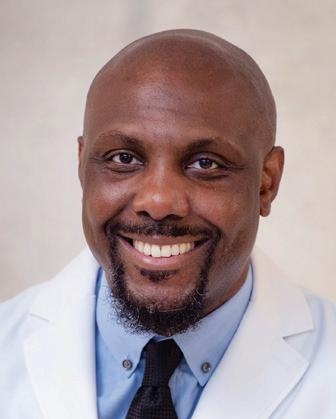
According to Dr. Mgbako, the new implants, which are made of titanium and cobalt chromium, contour the ankle’s native anatomy more accurately. “We don’t have to remove as much bone, so more bone stock is left in case a revision is needed in the future,” he says.
After Davis broke her ankle, she says, “I had surgery to reset it, with screws and plates inside. It was never the same after that.” Dr. Mgbako, who heads the Division of Podiatry at RWJUH Rahway, says Davis “had developed post-traumatic ankle arthritis. A major factor for that is an ankle fracture that didn’t heal in the correct position.”
In the years after her original surgery, Davis tried braces, Tylenol and cortisone injections, “but the pain would always come back,” she says. Her pain took a mental toll as well. Davis stopped traveling because, she explains, “I was slow and didn’t want to hold everybody back. I was passing up promotions at work because I knew I couldn’t keep up with the pace. It took over my life for more than a decade.”
Then one day, while doing some research online, Davis found Dr. Mgbako. “He was so patient and kind, and he listened to all my concerns,” she recalls. “He said, ‘We’re going to fix that.’” And he did.
After undergoing several months of post-surgery physical therapy, Davis is no longer living with constant pain. “Ankle arthritis is a very debilitating condition,” says Dr. Mgbako. “Christine has spent so many years dealing with an incredible amount of pain. She was amazing through her whole recovery process.” Dr. Mgbako says the new ankle replacements will likely last 15 to 20 years before a revision will be required.
In the meantime, Davis is checking items off her bucket list, including parasailing, which were delayed because of her pain.
“It’s changed my life,” Davis says of the surgery. “Before, I always had to prep myself, prep my ankle, just to get up. Now, I can get up and go. I’m free.”
To connect with a specialist at RWJUH Rahway, call 888.724.7123 or visit www.rwjbh.org/rahway .
“It’s
the best decision I ever made,” says Christine
Davis
of her
ankle
replacement
surgery.
CHUDI MGBAKO, DPM, FACFAS AFTER YEARS OF UNRELENTING PAIN, A PLAINFIELD RESIDENT GETS A NEW LEASE ON LIFE WITH ANKLE REPLACEMENT SURGERY.
Healthy Together | 8 Fall 2022
The best kind of back support is spine care close to home. Do it right. Here.
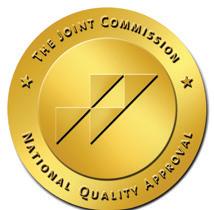




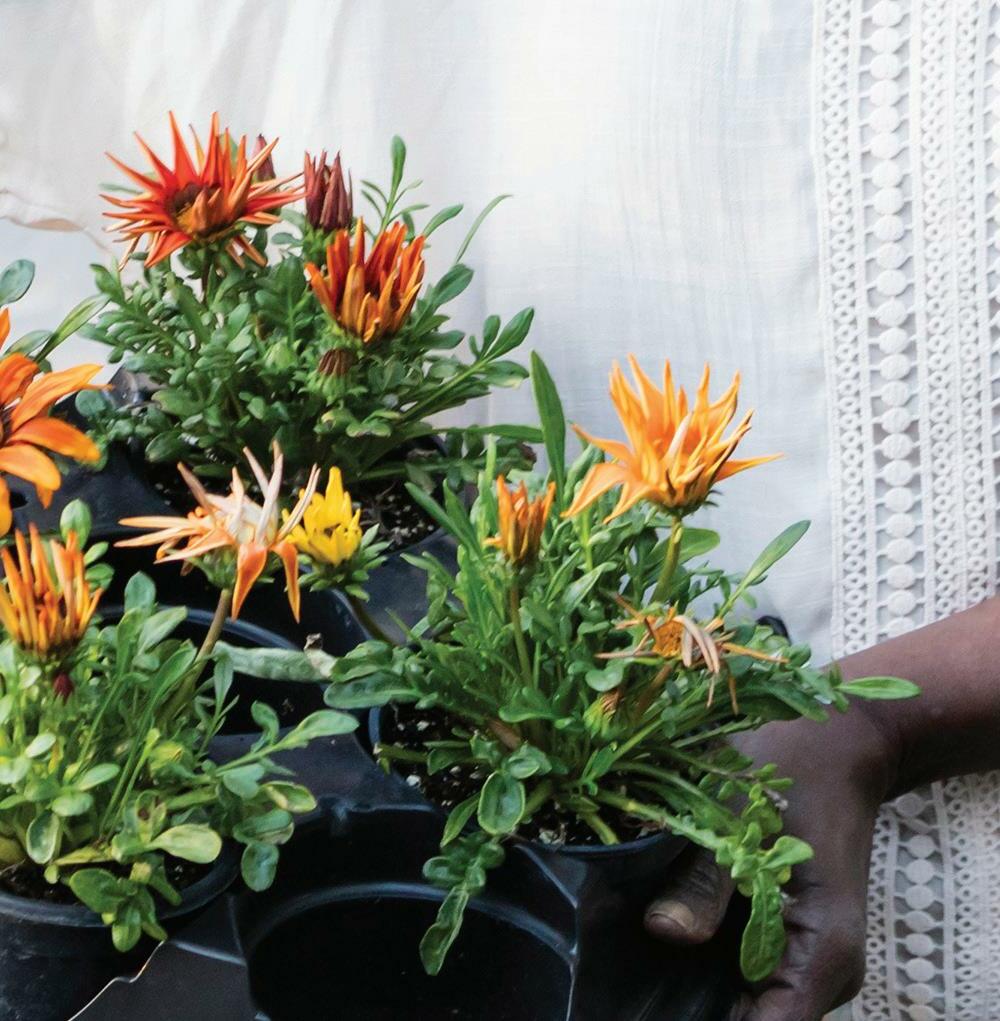
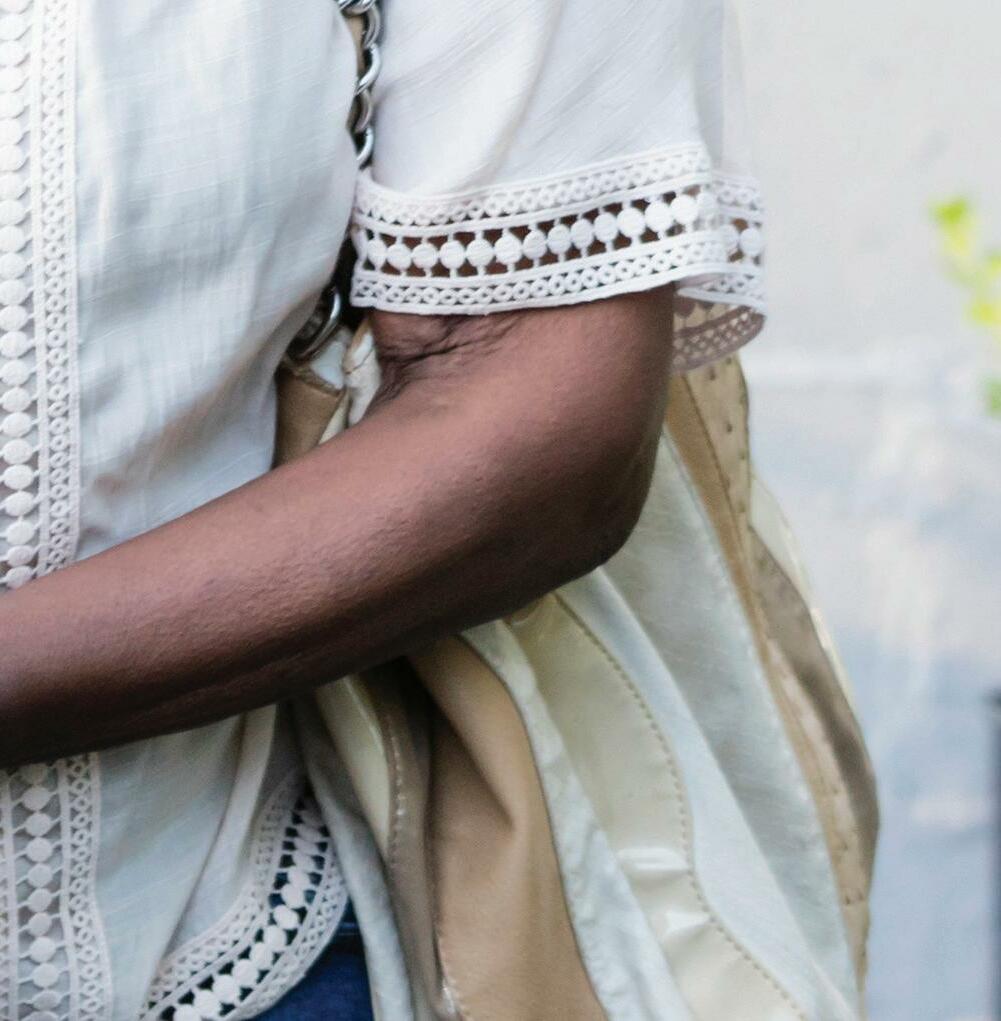

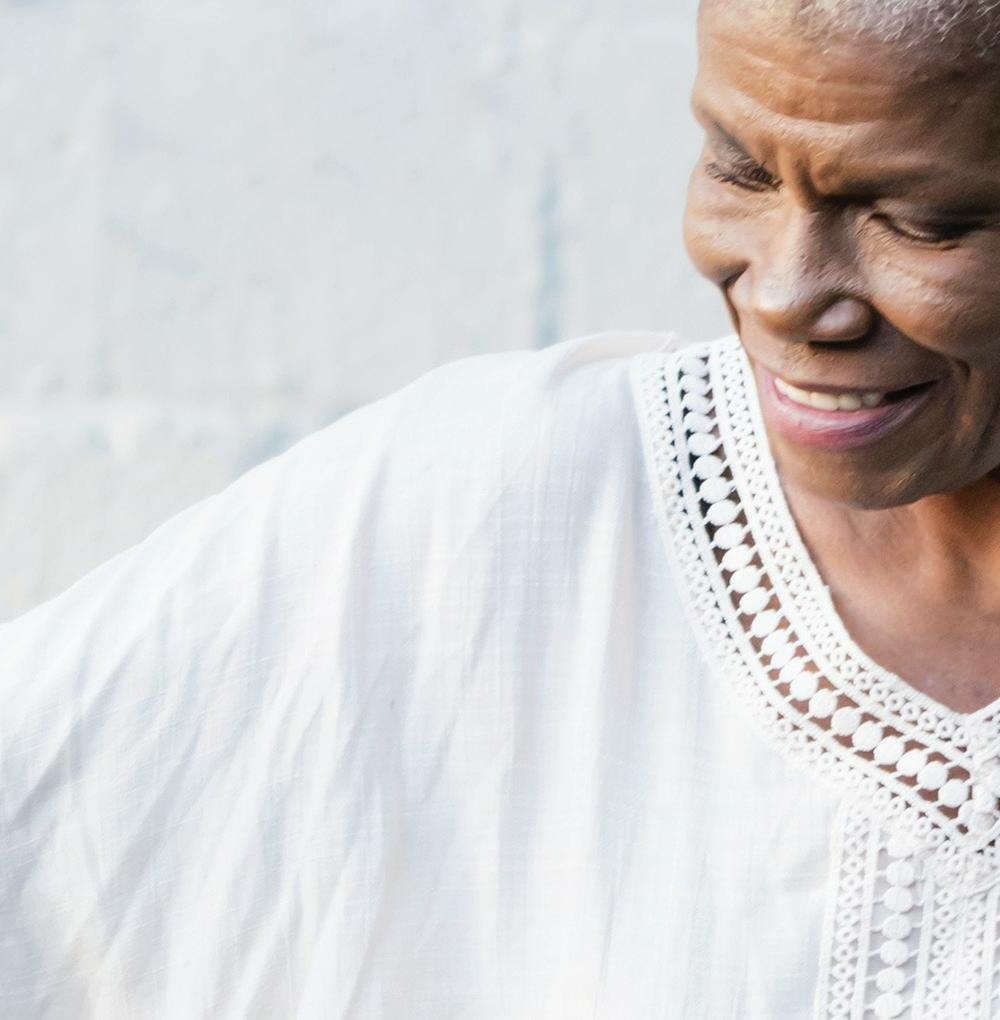







When you need treatment for spinal problems, even the thought of traveling out-of-state for care can be painful. At RWJBarnabas Health, our orthopedic surgeons and neurosurgeons work with you to create a personalized treatment plan, right in your own community. We offer non-surgical treatments in addition to the latest surgical techniques, such as reconstruction and minimally invasive robotic surgery. Learn more at rwjbh.org/spine
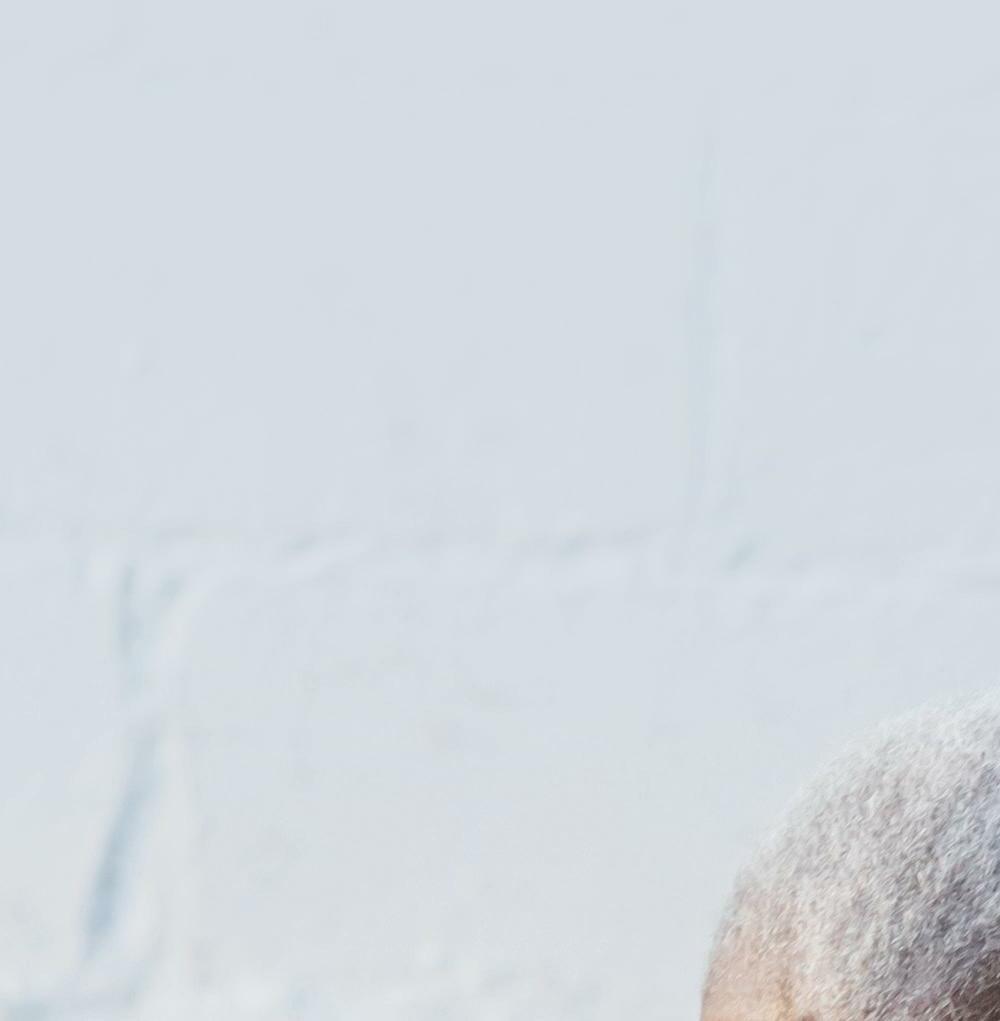
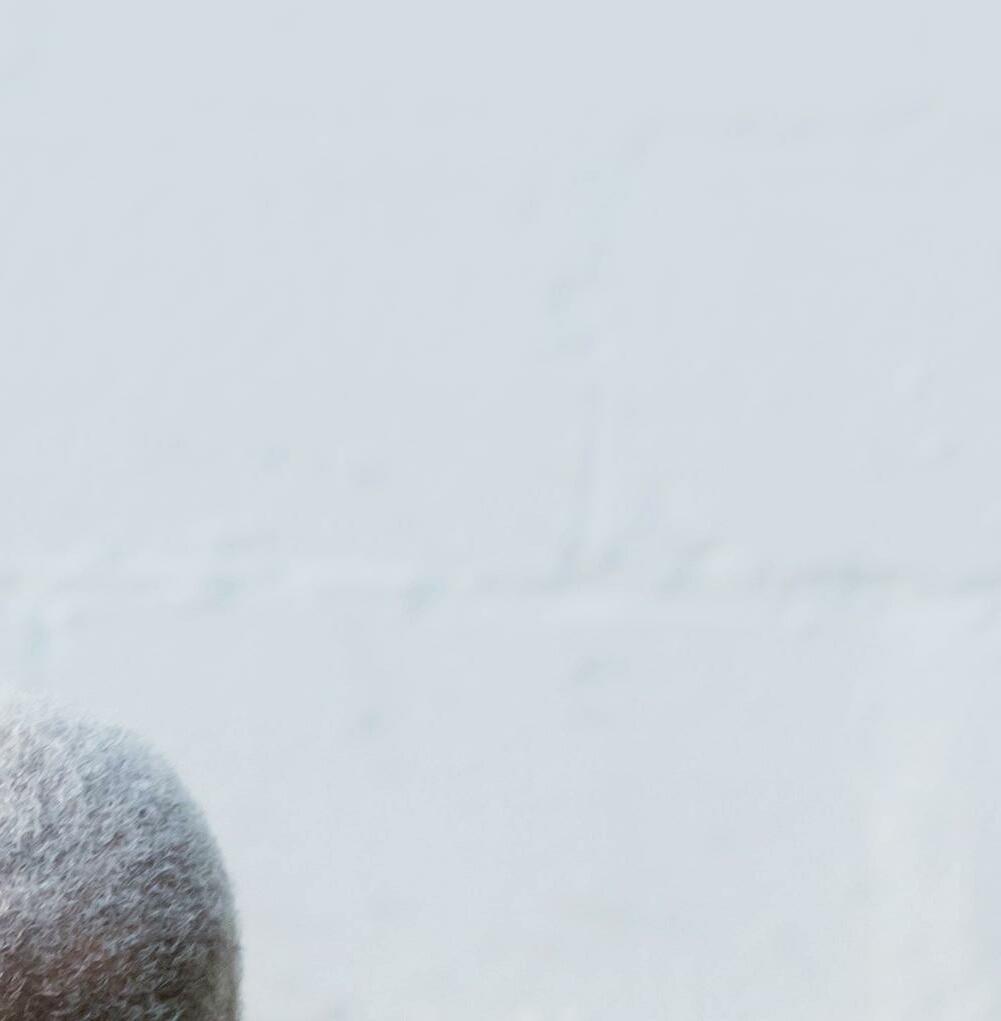
Find relief with our board-certified specialists just minutes away.
HOLIDAY BLUES?
HERE’S HOW TO COPE

Healthy Together | 10 | Fall 2022
WHY THE HOLIDAYS CAN BE AN EMOTIONAL MINEFIELD— AND WHAT YOU CAN DO TO HELP KEEP NEGATIVE EMOTIONS AT BAY
The days are getting shorter, the weather’s getting cooler and soon the holidays will be here. For some of us, the weeks and months leading up to the holiday season are filled with eager anticipation. But for many others, this time can be an emotional minefield fraught with crippling anxiety and depression. Here, psychiatrist Arnold Williams, MD, Medical Director of the Behavioral Health Center, part of RWJBarnabas Health’s Behavioral Health and Addictions Services, explains the link between the holidays and depression—and offers advice to help you cope.
Why do people get depressed around the holidays?
The holidays coincide with late fall and winter, when exposure to sunlight is decreased. This can have a profound effect on mood. In addition, many businesses slow or even shut down during the holidays, and, for some, that may mean fewer opportunities for social interaction.
Do the holidays tend to exacerbate existing depression?
The holiday season is a time of reflection and gift-giving, which can be rewarding for those in fortunate circumstances. However, isolation, separation from loved ones and anniversaries of loss can all worsen depression.
What’s the difference between being depressed and simply feeling sad?
7 WAYS TO COUNTERACT HOLIDAY DEPRESSION
According to RWJBarnabas psychiatrist Arnold Williams, MD, there are things you can do to mitigate depression:
1. Maintain contact with friends and family, if possible.
2. Get as much natural sunlight as you can.
3. Exercise—walk, run, move.
4. Practice yoga, mindfulness and meditation. They work!
5. Recognize that this too shall pass. You’ve survived all of the bad days you’ve had so far— that’s proof that things can get better again.
6. Don’t try to ease the pain with substances; it will compound the problem.
7. Know that you’re not alone. Reach out to a professional who can help you.
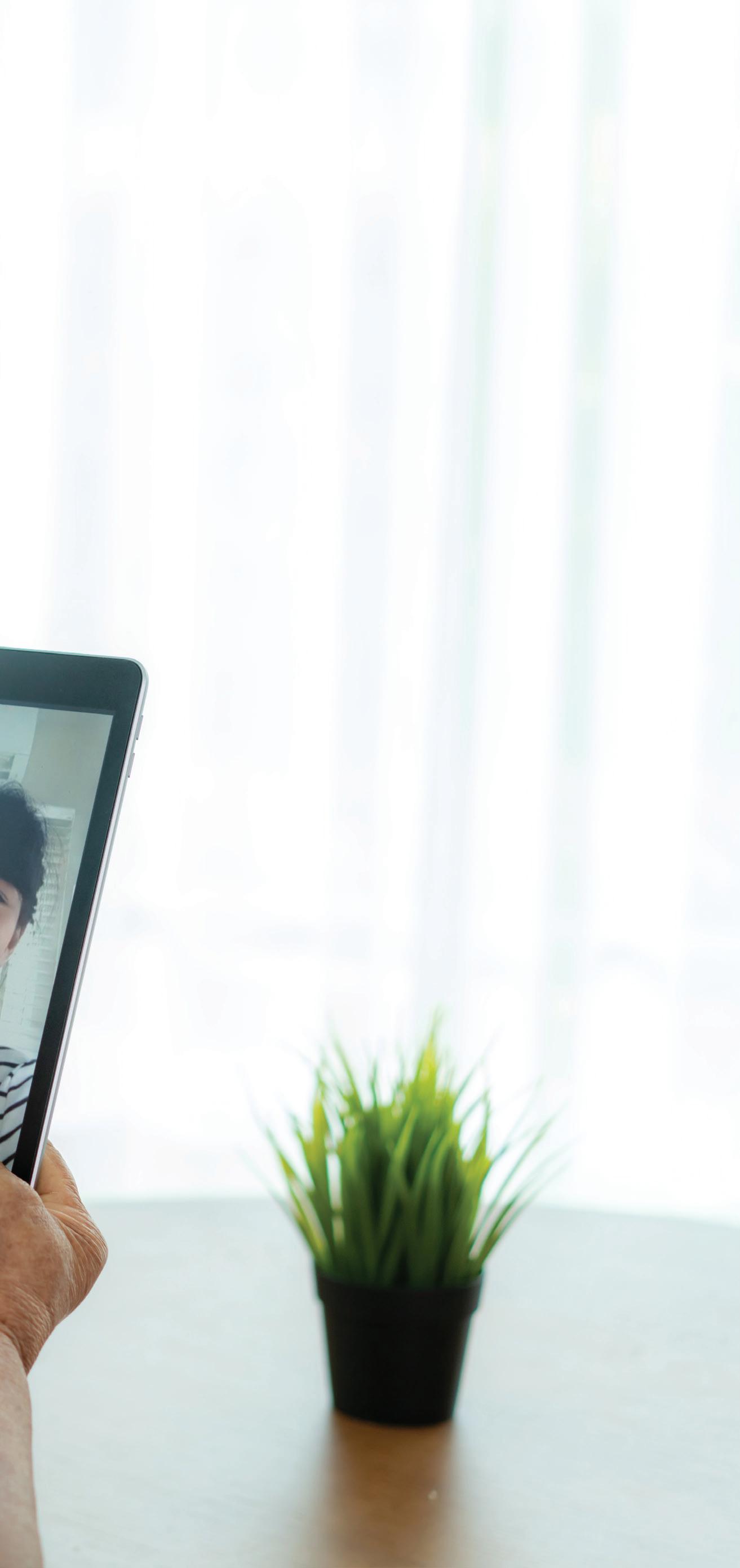
patterns and reduced self-esteem. At its most extreme, depression can include suicidal thoughts or feelings of not wanting to be alive.
Do depression and anxiety always go hand-in-hand?
They can happen together or separately. Philosophically, depression and anxiety are two sides of the same coin. Anxiety is an anticipatory “what if” reaction, dreading the unknown and fearing the worst. Depression is a conclusion that the worst is happening right now and may not ever get better.
ARNOLD A. WILLIAMS, MD

Depression implies a wide constellation of symptoms over several days or weeks. The emotion itself is only one component. Most commonly, that emotion is sadness, but there can also be anger, loneliness, worry or anxiety, as well as changes in thoughts and behaviors. Examples include losing interest in things you usually enjoy, a decrease in energy, changes in appetite or sleep
How does grief impact depression and vice versa? Grief can be a trigger for a relapse in depression, and a person who’s been depressed may experience a prolonged grief period. The holidays are difficult partly because they’re usually connected to memories of a lost loved one.
If you or a loved one are in need of mental health treatment, call our Access Center, open 24 hours a day, at 1.800.300.0628 to learn more about your mental health options or visit www.rwjbh.org/behavioralhealth .
RWJBarnabas Health | RWJBH.ORG | 11
HELPING YOU NAVIGATE YOUR CANCER JOURNEY
Being diagnosed with cancer is life-changing. It can have a profound effect on your psyche, leaving you feeling frightened, confused and overwhelmed. At the same time, you need to make calm, clear and timely decisions about important matters such as doctors and treatment options.
That’s why RWJBarnabas Health (RWJBH) and Rutgers Cancer
Institute of New Jersey, the state’s only National Cancer InstituteDesignated Comprehensive Cancer Center, developed the Oncology Nurse Navigation Program.
For a person with cancer, a nurse navigator is not just a valuable resource, but a smiling face and a caring individual to help you and your family maneuver the often uncharted territory of your cancer journey.
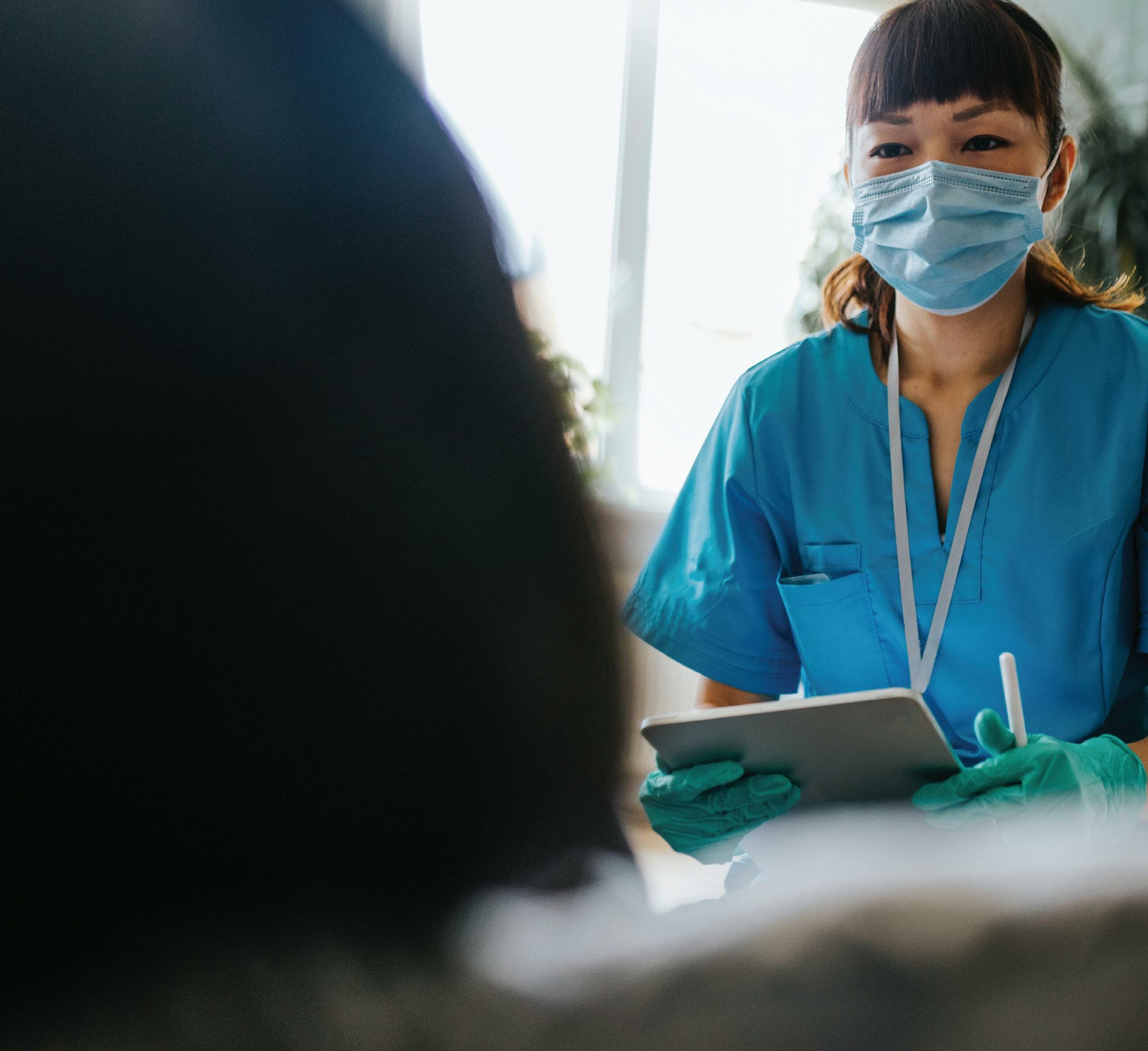
ONCOLOGY NURSE NAVIGATORS OFFER COMPREHENSIVE SUPPORT AND SERVICES TO PATIENTS AND THEIR CAREGIVERS.
Healthy Together | 12 | Fall 2022
Jeanne Silva, MSN, RN-BC, Assistant Vice President, Oncology Access and Nurse Navigation, Oncology Services, explains what the Oncology Nurse Navigation Program is and how it works.
What does the Oncology Nurse Navigation Program do?
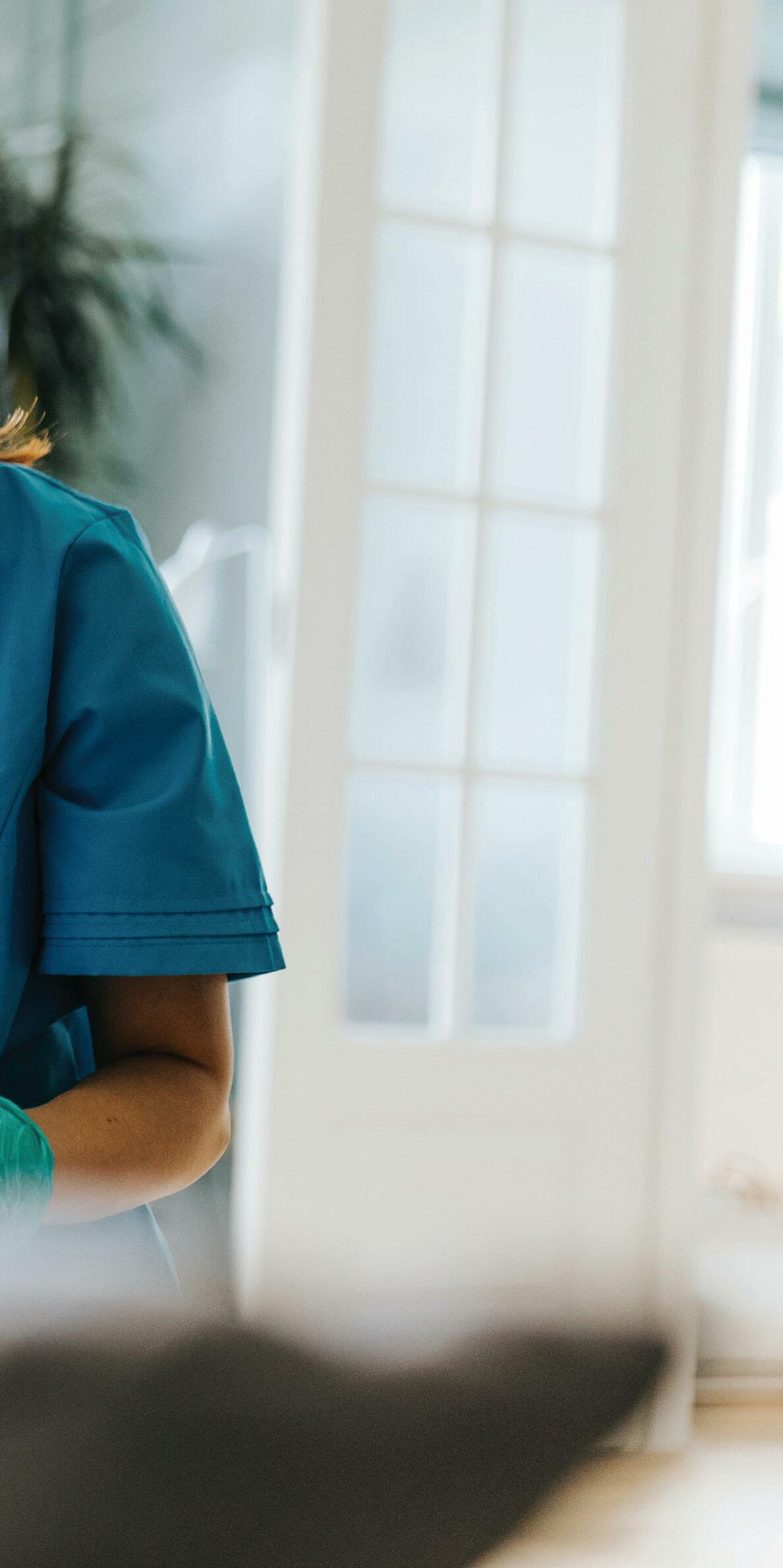
If you’re diagnosed with cancer and are a patient at RWJBH, the program
EACH NAVIGATOR BRINGS A WEALTH OF KNOWLEDGE, ENERGY AND EMPATHY. YOU’RE UNIQUE WITH YOUR OWN STORY, AND THE NAVIGATOR IS THERE TO LISTEN AND HELP.
places an expert at your side who advocates for you and provides direction, support and information through all phases of treatment at no additional charge. The nurse navigator is the hub of your care team, communicating your needs across departments and answering your questions about what to expect, what to do, where to go and why. Having a trusted, committed expert guiding
you helps you participate fully in treatment decisions, achieve quality outcomes and reduce stress.
When was the program developed, and how has it changed since its inception?
The RWJBH nurse navigation program began in 2018 with 18 navigators. Today we have 45 navigators and are growing. Oncology nurses receive navigationspecific training as well as ongoing education to improve care through measures such as shortening the time between diagnosis and meeting with an oncologist and improving access to palliative care.
Our program is the state’s largest. We routinely conduct quality improvement projects and have presented our outcomes nationally to share best practices. We are one team across our facilities. If you see an oncologist from Rutgers Cancer Institute, for example, but want to receive radiation therapy closer to home or need to see an RWJBH subspecialist, we help coordinate your care seamlessly between sites.
What are some benefits that patients might find surprising?
You’re quickly assessed for any barriers to care and provided resources to overcome them. Barriers often include lack of knowledge, transportation difficulties and financial hurdles. Helping you ease worries allows you to focus on getting well. One aspect is that anxiety and fear of the unknown sometimes prevent people from starting potentially life-saving treatments. We’ll assess this and provide support so you can get the right care. Or, for example, if you’re a candidate for a clinical trial, the navigator can educate you about that and connect you with a research team.
Each navigator brings a wealth of knowledge, energy and empathy. You’re unique with your own story, and the navigator is there to listen and help.
RWJBarnabas Health, in partnership with Rutgers Cancer Institute of New Jersey—the state’s only NCI-Designated Comprehensive Cancer Center—provides close-to-home access to the most advanced treatment options. Call 844.CANCERNJ or visit www.rwjbh.org/beatcancer.
RWJBarnabas Health | RWJBH.ORG | 13
ONE STEP AT A TIME
SPINA
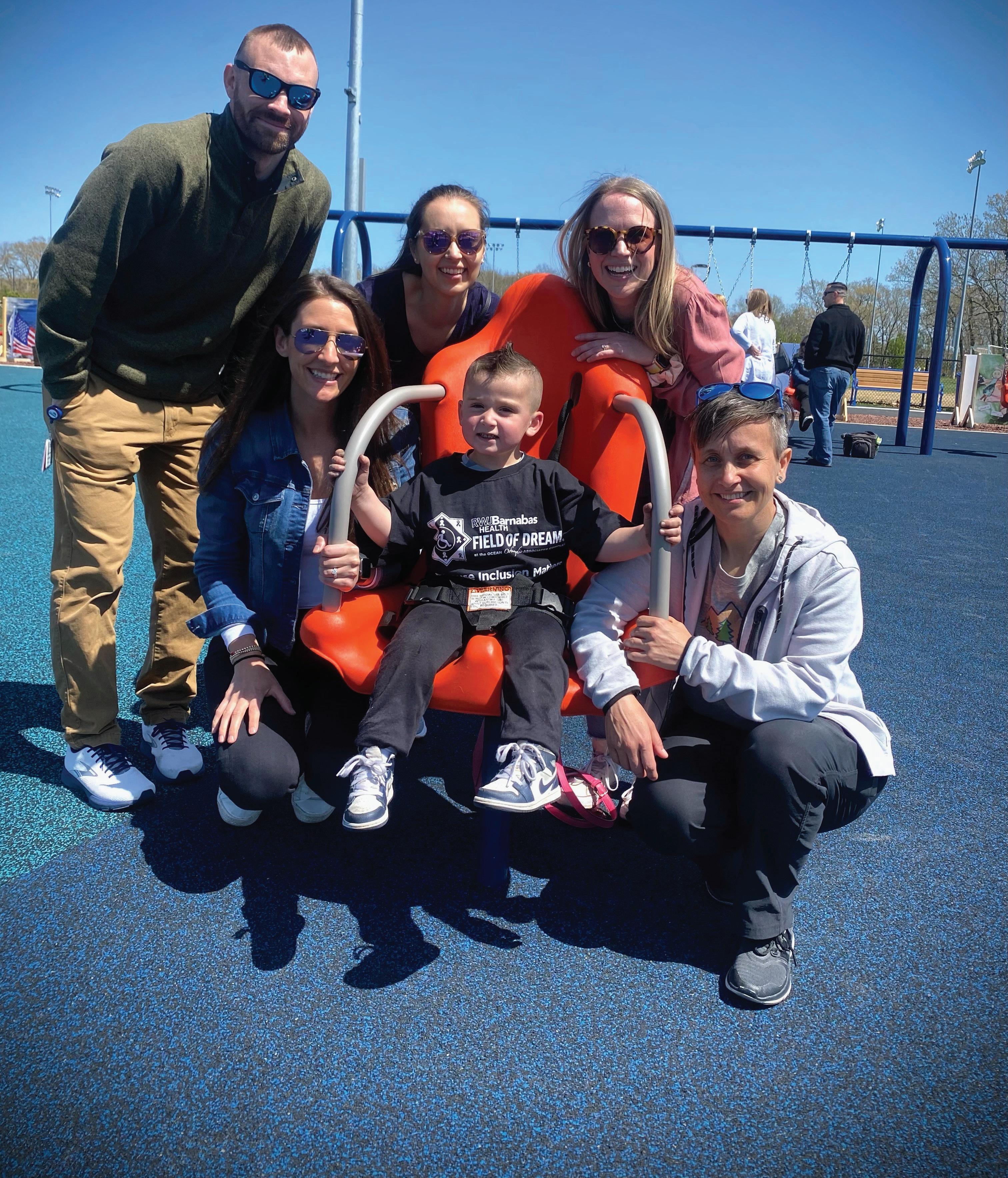
Healthy Together | 14 | Fall 2022
BIFIDA COULDN’T STOP LITTLE NIKOS. THE TEAM AT CSH WOULDN’T LET IT.
Nikos Kaymakcian is a happy little boy who loves pirates and practicing karate with his older brother, Arman. As he approaches his fourth birthday, his parents, Nicole and AJ Kaymakcian, can’t help but wonder how their lives might be different if they hadn’t sought a second opinion when Nicole was pregnant with Nikos. It was then, at their 20-week ultrasound, that Nicole and AJ were told that their son has spina bifida, a neural tube defect (NTD) that often results in spinal cord and nerve damage. “The doctor told us that our son would never walk or be able to use the bathroom on his own and would require a shunt to drain fluid from his brain,” Nicole recalls. In one fell swoop, their hopes and dreams for their baby came crashing down.
But a friend whose child had received a similar diagnosis recommended that

Nicole contact her neurosurgeon for a second opinion. After examining Nicole and her baby, the doctor told Nicole to go home and enjoy her pregnancy. “He said, ‘When your son is born, we’ll do surgery and take it from there,’” she remembers. And that’s what happened.
In October, 2018, Nicole gave birth to Nikos at Monmouth Medical Center, and the neurosurgeon performed the baby’s surgery the following day. Before his first birthday, Nikos began early intervention with physical therapy at Children’s Specialized Hospital (CSH), part of the Children’s Health Network
at RWJBarnabas Health.
CSH physical therapist Tara Iannello, who has been working with Nikos since then, “is an angel,” says Nicole. Nikos also works with physical therapist Natalie Vulpis. “She gives Nikos a push when he doesn’t want to do something and has also been a great fit for him,” says Nicole.
The CSH physical therapists go out of their way, not only to provide great care, but to customize it and make it fun. “Last year, Nikos loved superheroes,” says Nicole, “so Tara set up superhero action figures in stations so he had to practice walking to each one.”
Though Nikos has some weakness in his ankles and feet due to nerve damage, he’s on par with all other milestones for his age and, says his mom, “he’s now walking with braces and his walker, taking steps on his own.
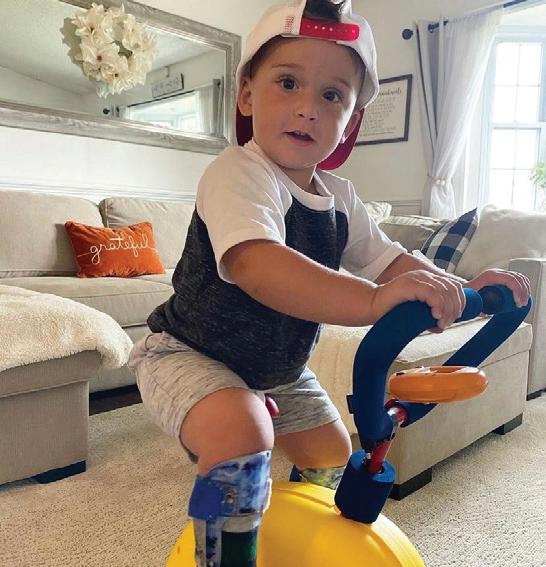
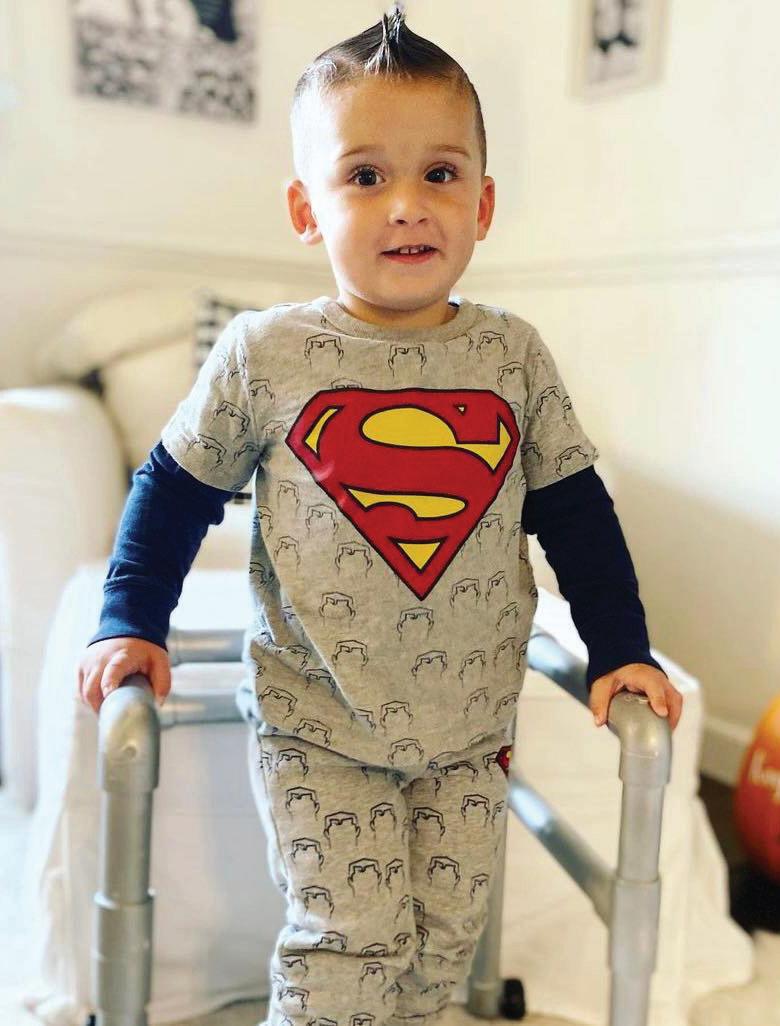
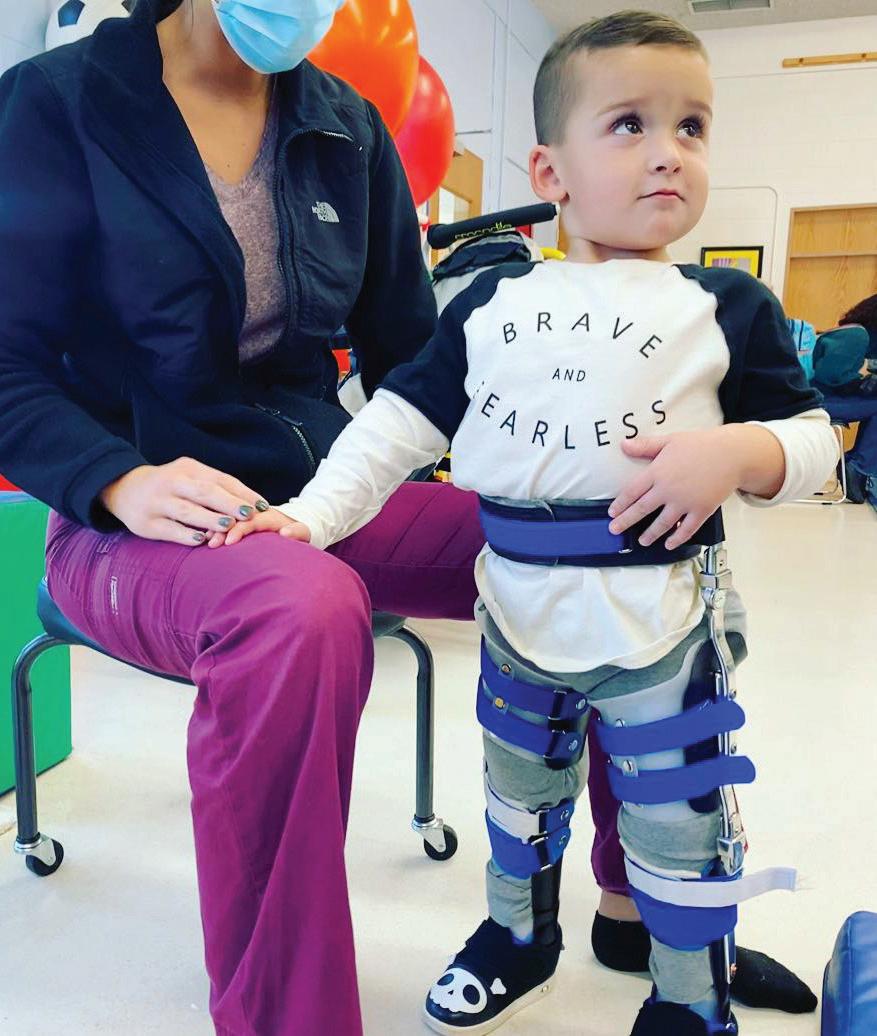
“I can’t say enough good things about what the people at CSH have done for my son. We’re so blessed.
We love them with all our heart.”
The feelings are mutual. “He’s such a sweet and funny kid, and he’s gotten so strong,” Iannello says of Nikos. “We have no doubt that he’s going to do great things in this world.”
Clifton, East
and West Orange.
RWJBarnabas Health | RWJBH.ORG | 15 Thanks to the dedicated care and support of his physical therapists (previous page) at CSH, the love of his parents and his own indomitable spirit, Nikos Kaymakcian, who was born with spina bifida, continues to make great strides. To learn more about outpatient programs and services at Children’s Specialized Hospital, visit rwjbh.org/cshoutpatient or call 888.244.5373
At Children’s Specialized Hospital, we provide world-class care for children and young adults who face special health challenges across the state of New Jersey and beyond. We treat everything from chronic illnesses and complex physical disabilities, like brain and spinal cord injuries, to a full scope of developmental, behavioral and mental health concerns. We have convenient locations throughout the state: Bayonne,
Brunswick, Eatontown, Egg Harbor Township, Hamilton, Jersey City, New Brunswick, Newark, Somerset, Toms River, Union
THE LOWDOWN ON LOW-DOSE ASPIRIN
WHAT YOU NEED TO KNOW ABOUT THE LATEST GUIDELINES FOR HEART ATTACK AND STROKE PREVENTION
For years, taking a daily low-dose aspirin for the prevention of heart attack and stroke has been a widely accepted practice. But the U.S. Preventive Services Task Force (USPSTF) recently issued updated guidelines recommending against its use in certain patients for primary prevention of heart disease. Here, cardiologist Jeffrey S. Lander, MD, Co-Director of Sports Cardiology at RWJBarnabas Health, Co-Medical Director of the Cardiac Care Unit at Cooperman Barnabas Medical Center and a member of RWJBarnabas Health Medical Group, explains.
How are the new guidelines different from the previous guidelines?
This is a big change from the 2016 guidelines, which recommended using aspirin for primary prevention in adults aged 50 to 59 who were at risk for cardiovascular disease, and to consider its use for certain adults aged 60 to 69 who were at risk for cardiovascular disease.
What prompted these new recommendations?
recent stent procedure. If someone has that history, it’s generally beneficial to take a low-dose daily aspirin as it helps reduce the risk of recurrent cardiac disease or events.
If someone has been following a lowdose aspirin regimen for years, what should they do?
JEFFREY S. LANDER, MD

The 2022 guidelines state that using aspirin in select 40to 59-year-olds may have some benefit in preventing heart disease, but it is not recommended for people aged 60 and older.
Older trials of aspirin use for primary prevention showed benefits—for example, reduction in heart attacks. However, more recent studies did not show a significant reduction in cardiovascular disease. In addition, many of these trials also showed significant risk of internal bleeding among those taking daily aspirin. Given these findings, the recommendations changed.
Are there exceptions to the new guidelines?
It’s very important to remember that these recommendations don’t pertain to patients with a prior history of heart attack, stroke, bypass surgery or a
In that case, it’s important that they speak to their doctor or healthcare provider before making any changes. All of the risks and benefits should be weighed prior to stopping aspirin. Most of the time when aspirin is to be stopped, it’s OK to simply stop; a stepdown approach isn’t needed.
How will the new guidelines change your recommendations to patients?
I feel that most of the latest evidence is in support of the new guideline recommendations.
Each patient is unique, and when recommending to either use or not use aspirin for primary prevention of heart disease, the risks and benefits should be discussed and weighed by doctor and patient to make an individualized plan.
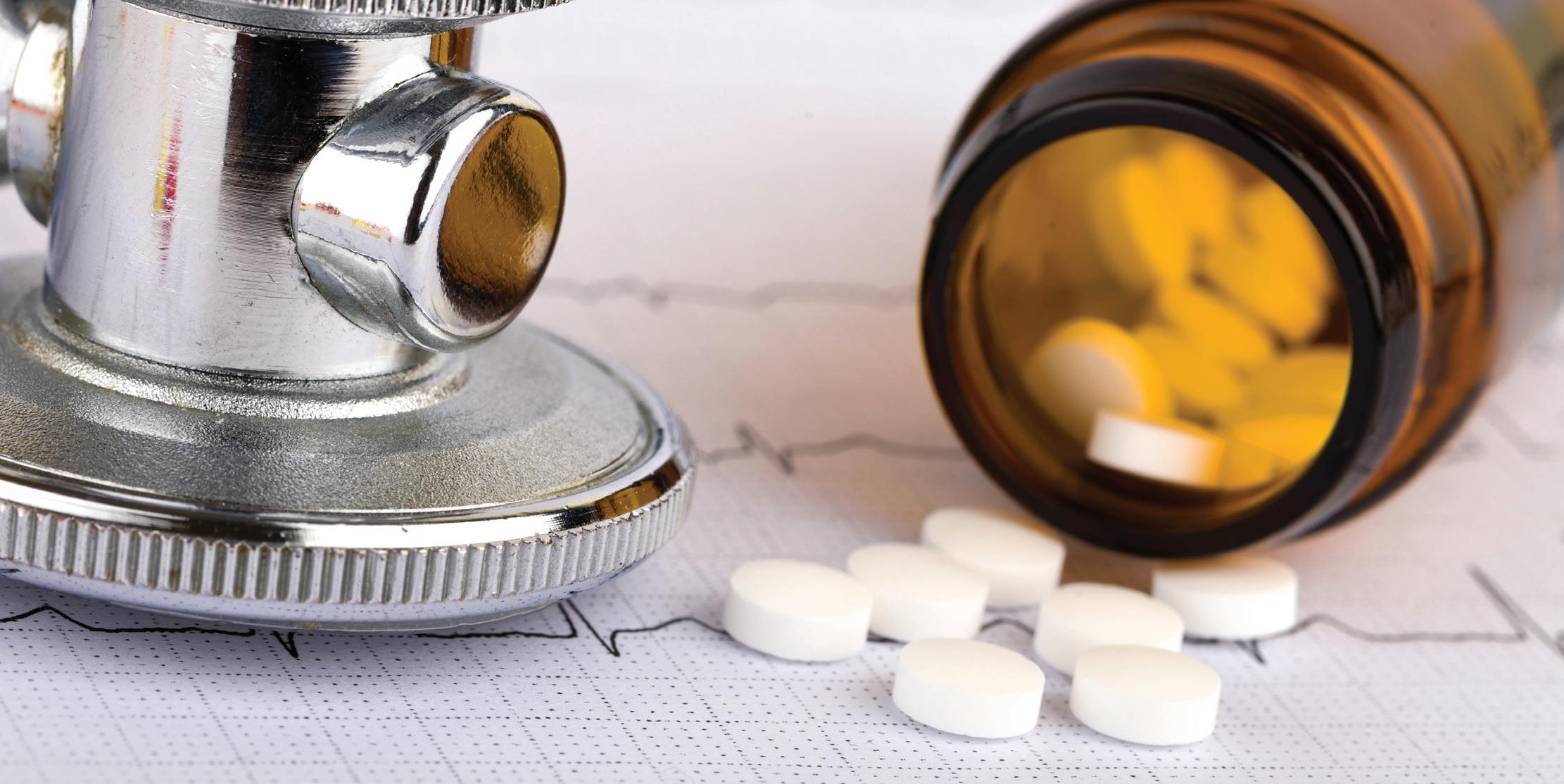
Whoever your heart beats for, our hearts beat for you. To connect with a top cardiovascular specialist at RWJBarnabas Health, call 888.724.7123 or visit www.rwjbh.org/heart
Healthy Together | 16 | Fall 2022
EAT HEALTHY
FOR LESS
YOU CAN EAT WELL WITHOUT BREAKING THE BANK. HERE’S HOW.
...
Robert Wood Johnson University Hospital Rahway | RWJBH.ORG/RAHWAY | 17
With food prices skyrocketing, it may be hard to believe that you can eat well these days without spending a fortune. But you can—if you plan well and shop wisely. Here, Aliz Alaman, a registered dietitian/ nutritionist with Robert Wood Johnson University Hospital (RWJUH) Rahway, shares some tips for keeping healthy food costs low.
SMART SHOPPING
Even if you consider yourself “old school,” it’s probably time to stop clipping coupons and go digital. According to Alaman, if you’re not using a store’s mobile app or another discount grocery app (like Ibotta), you may be missing a lot of good deals. “Some apps even give you cash back rewards for certain purchases,” she says.
Also, if you usually shop at the same store, consider expanding your range. “Different stores are known for different things and offer different discounts,” says Alaman. “One store may have good meat and produce buys, while another is known for low-cost gluten-free or keto foods. So there’s some value in not being loyal to one store.”
PRICEY PROTEINS
Proteins are often the most expensive part of a meal. But there’s a wide array of affordable options between filet mignon and peanut butter. “If your family likes meat, pork loin is one of the more affordable options,” says Alaman. “And it’s about as lean as chicken breast.”
Speaking of chicken, rotisserie chickens are often very good buys. In fact, many supermarkets use them as “loss leaders”— inexpensively priced products that bring people into the store. Alaman says a smart way to make a rotisserie chicken last for more than one meal is to strip the meat and make a dish like chicken tacos one night, chicken and rice another.
Enjoying healthy fish doesn’t have to break the bank, either. “Canned salmon is healthy, affordable and great for salmon burgers or patties [see recipe, page 19],” says Alaman. Canned tuna is healthy, too, with chunk light being more affordable than solid white. “It also tends to have less
3 FOOD SHOPPING MYTHS— DEBUNKED
MYTH 1:
FRESH IS ALWAYS BEST.
“Fresh produce is most affordable when it’s in season, because it’s abundant,” says Alaman. “But when it’s not in season, frozen is a great option.” Frozen fruits and vegetables can also be stored longer, reducing food waste.
MYTH 2:
BUYING IN BULK IS ALWAYS SMARTEST.
“Resist buying in bulk if you can’t store the food properly; otherwise it’ll go bad before you can use it,” says Alaman. “Bulk prices can be tempting, but, if you’re wasting food, it’s not a bargain.” If your family eats meat and chicken often, those may be good to buy in bulk because you can divide them into small packages and freeze them for several months. Chicken breast can be stored in the freezer for up to nine months and steak for up to a year.
MYTH 3:
BUYING FOOD THAT’S ON SALE IS ALWAYS THE BEST STRATEGY.
“If you just buy what’s on sale or what looks good, you’re likely to wind up with a lot of food—but nothing to eat,” says Alaman.
“It’s like when someone looks in a closet full of clothes and says they have nothing to wear.” So if there’s a BOGO sale on tofu burgers but your family won’t go near them, what’s the point? Instead, Alaman says, have a weekly food/meal plan and use that to make a shopping list. That way you’ll just buy what you need—and eat what you buy.
mercury,” notes Alaman. “If you like your tuna packed in oil instead of water, look for a heart-healthy oil like olive oil and try using that oil in your recipe, too.”
There are many healthy and relatively inexpensive vegetarian protein options as well. Eggs, for example, can be used for omelets, salads and main dishes. And legumes and beans are always a smart choice. “Dried beans are the most affordable, but they take a little more preparation; they have to be soaked overnight,” says Alaman. “Canned beans, however, can be used right out of the can after rinsing.”
HOLIDAY ENTERTAINING
Yes, it’s possible to feed a crowd— festively—on a budget. And again, you don’t have to sacrifice nutrition (or flavor) to do it. “My first advice: potluck parties!” says Alaman. “That way you don’t have to
pay for the whole menu yourself.” If you’re tasked with providing the main dish, choose vegetarian party favorites. TexMex dishes are a good option, and that doesn’t have to mean chili. “Try Chipotleinspired burrito bowls or add garbanzo beans to big salads,” advises Alaman. You can also add beans to many pasta dishes.
“Squashes are great for holidays, too,” says Alaman. “There are lots of tasty recipes using butternut squash or pumpkin that are seasonal and nutritious.”
You can also save money by making party snacks yourself rather than buying prepackaged products. “You can pop corn kernels in a paper bag in the microwave,” says Alaman. “It’s less expensive than buying packaged popcorn, and it lets you control how much salt and fat you want to add. Add some healthy nuts and a dusting of cocoa powder for a really
Healthy Together | 18 | Fall 2022
DELICIOUSLY HEALTHY RECIPES
…TO TAKE THE EDGE OFF THAT AUTUMN CHILL
AUTUMN VEGAN PUMPKIN CHILI
Yield: 8 servings
Autumn foods don’t have to be loaded with saturated fat and carbs to be comforting. This hearty, healthy and delicious vegan pumpkin chili will warm you up—and fill you up—with calories left to spare.

INGREDIENTS:
• 1 Tbsp. vegetable oil
• Medium white onion, diced
• 1 Tbsp. chili powder
• 1 tsp. ground cumin
• 1 tsp. dried oregano
• Pinch of ground nutmeg
• Pinch of allspice
• 3 garlic cloves, pressed or pounded
• 5 oz. can fire-roasted diced tomatoes, with juice
• 28 oz. can diced or chopped tomatoes, with juice
• 15 oz. can pure pumpkin puree (not pumpkin pie filling)
• 2 (15 oz.) cans black beans, drained and rinsed
• 1 cup water
• Salt and pepper to taste
• Chili toppings, if desired (*note that they may add calories, fat and carbs)
DIRECTIONS:
• In a Dutch oven or heavy pot, add oil and heat over medium heat. After about 30 seconds, add the onion and cook until translucent, about 5 minutes. Add garlic and stir, then add chili powder, cumin, oregano, nutmeg and allspice, stirring often, for about 2 minutes or until fragrant.
• Add the fire-roasted tomatoes, diced or chopped tomatoes (with juice) and pumpkin puree. Whisk to combine.
• Stir in the beans, water, salt and pepper. Reduce heat to low, cover Dutch oven partially with lid and let simmer for about 30 minutes or longer, stirring often.
• Serve by itself or with bread, rice or a topping of your choice.
SCRUMPTIOUS SALMON CAKES
INGREDIENTS:
• 1½ Tbsp. extra-virgin olive oil, divided
• 1 small onion, finely chopped
• Pinch of cayenne
• 2 Tbsp. finely chopped parsley (fresh)
• Pinch of rosemary
• 15 oz. canned salmon
• 1 egg, beaten
• 1½ Dijon mustard
• 1¾ cups fresh breadcrumbs, preferably whole wheat
• Ground black pepper to taste
DIRECTIONS:
• Preheat oven to 450 degrees
F. Coat a baking sheet with cooking spray or mist with olive oil spray.
• Heat half the oil in a large nonstick pan over medium-high heat. Add onion and cook, stirring until softened, about 3 minutes. Stir in parsley and remove from heat.
• In a bowl, flake salmon with a fork, removing any bones. Add beaten egg and mustard; mix well. Add the onion mixture, breadcrumbs and pepper, cayenne and rosemary; combine. Using your hands, shape the mixture into 8 salmon cakes, each about 2½ inches wide.
• Heat remaining oil in the same pan over medium heat. Add cakes, 4 at a time, and cook until the bottoms of the patties are golden, 2 to 3 minutes. Using a slotted spatula, remove cakes and turn them over onto the baking sheet.
• Bake the salmon cakes until heated through and golden on top, 15 to 20 minutes.

• Serve with a dill sauce or pair with vegetables or a salad.
CINNAMON-SUGAR MICROWAVE POPCORN
Serving size: 3 cups
Want a whole-grain snack that has just enough sugar to satisfy a sweet tooth? This cinnamon-sugar microwave popcorn recipe is fun, delicious and easy-peasy.
INGREDIENTS:
• 1½ Tbsp. popcorn kernels
• 1 tsp. canola oil
• ½ tsp. confectioners’ sugar
• �⁄₄ tsp. ground cinnamon
• Pinch of salt
• You’ll also need a brown paper bag.
DIRECTIONS:
• Add popcorn kernels to a medium brown paper bag. Close the bag securely by folding the top 2 or 3 times.

• Microwave about 1 to 1½ minutes, or until the corn stops popping.
• Open the bag carefully (do NOT open close to your face) and add the oil, sugar, cinnamon and salt.
• Fold the top of the bag to close and shake well to coat.
• Tip: Try with other powdered or granulated flavorings such as lemon, cocoa or vanilla sugar.
Robert Wood Johnson University Hospital Rahway | RWJBH.ORG/RAHWAY | 19
IS IT COPD OR CHF?
KNOW THE DIFFERENCES AND SIMILARITIES BETWEEN THE TWO.
Chronic obstructive pulmonary disease (COPD) and congestive heart failure (CHF) are two separate chronic conditions. On the most basic level, COPD affects the lungs while CHF affects the heart. The heart and lungs are indelibly linked, so sometimes symptoms overlap or co-exist and can be difficult to distinguish. For instance, both COPD and CHF can make breathing difficult, but they do so in different ways and for different reasons, so it’s important to see your health provider if you experience symptoms in order to get a proper diagnosis.
Though a person can have one condition without the other, COPD and

CHF often occur together, and, sometimes, according to a 2018 article in the European Respiratory Journal, each condition can make the other one worse. In addition, the American Heart Association (AHA) notes that severe lung diseases, which include COPD, are among the conditions that can lead to heart failure.

The good news is that appropriate treatment of COPD can have a positive effect on cardiovascular health, which may make it less likely that a person will develop CHF or another form of cardiovascular disease.
“If you’re diagnosed with one of these conditions, it’s prudent for your healthcare team to monitor you for the presence of the other,” says Carol Ash, DO, Chief Medical Officer at Robert Wood Johnson University Hospital (RWJUH) Rahway. “Though symptoms can be similar, there are notable differences between COPD and CHF, and each condition may require a different treatment regimen.”
WHAT IS COPD?
COPD comprises three main obstructive lung diseases: emphysema, chronic bronchitis, and asthma. Each of these diseases can cause blockages and reduced airflow.
SYMPTOMS OF COPD INCLUDE:
• shortness of breath during normal activities
• wheezing
• chronic cough
• fatigue
• blue tinge to the fingernails or lips
• excessive production of mucus or phlegm
• frequent respiratory infections
TREATMENT:
Treatment for COPD focuses on improving symptoms and slowing the progression of the disease. In some cases, a person may receive palliative care. Common treatments include medication, surgery, oxygen therapy, pulmonary rehabilitation and complementary therapies.
WHAT IS CONGESTIVE HEART FAILURE?
“CHF causes a reduced rate of blood flow out of the heart, making the heart unable to meet the body’s oxygen demands,” says Howard Levitt, MD, a cardiologist at both RWJUH Rahway and Newark Beth Israel Medical Center. “This also results in a backup of blood in the venous circulation.” Blood can pool in the blood vessels in the lungs, causing breathing problems, and in other areas of the body, which can cause swelling.
SYMPTOMS OF CHF INCLUDE:
• shortness of breath
• persistent coughing or wheezing
fatigue
swelling
• confusion and impaired thinking
increased heart rate
lack of appetite
TREATMENT:
Treatment for CHF can involve one or more of the following:
reducing fluid intake
limiting sodium in the diet
medication
surgery
cardiac rehabilitation and regular exercise
The RWJUH Rahway Heart Health Center operates Monday through Friday. To schedule an appointment, call 833.634 . 3278 .
CAROL ASH, DO
HOWARD LEVITT, MD
•
•
•
•
•
•
•
•
•
Narrowed bronchi
with phlegm
Alveoli with damaged membranes
Lung Healthy Together | 20 | Fall 2022
KEEPING HEARTS HEALTHY
ROBERT WOOD JOHNSON UNIVERSITY HOSPITAL RAHWAY’S NEW CARDIAC CLINIC CAN HELP.
HOWARD LEVITT, MD
Robert Wood Johnson University Hospital (RWJUH) Rahway has launched its Heart Health Center, an outpatient cardiac clinic to ensure continuity of care for cardiac patients. The clinic will focus on cardiac wellness, treating patients
discharged from the hospital after having suffered a heart attack, congestive heart failure (CHF) or other cardiovascular conditions.
“The clinic was established to ensure continuity of care and provide the needed follow-up after discharge,” says the clinic’s medical director, Howard Levitt, MD, a cardiologist with RWJUH Rahway and Newark Beth Israel Medical Center. “Managing heart disease can take time, getting medication right, balancing diet and
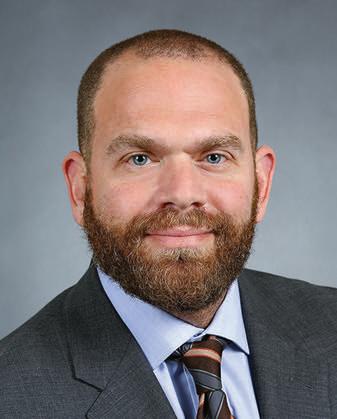
lifestyle. It’s important for people to have a place to go for that follow-up care.”
The clinic treats patients with cardiac conditions that include CHF, atrial fibrillation and arrhythmias.
“If patients have a place to go for their follow-up care, we can help keep them at work, at home and out of the hospital,” says Dr. Levitt.
The clinic operates Monday through Friday. To schedule an appointment, call 833.MDHeart or 833.634.3278.
1. Heart Attack
A heart attack happens when the flow of blood (which brings oxygen to the heart) in one or more of the coronary arteries suddenly becomes blocked or greatly reduced and the heart muscle can’t get enough oxygen.
SYMPTOMS INCLUDE:
• chest pain or discomfort
• shortness of breath
• pain or discomfort in arm or shoulder
• feeling weak, lightheaded or faint
• jaw, neck or back pain
MATTERS OF THE HEART
4 COMMON CARDIAC CONDITIONS EXPLAINED
We’re all familiar with the names. But do we really know what they mean? Here are four common cardiac conditions, explained:
2. Congestive Heart Failure (CHF)
Congestive heart failure (CHF) occurs when the heart can’t pump enough blood to keep up with the body’s needs. Despite its name, it doesn’t mean that the heart has stopped working.
SYMPTOMS INCLUDE:
• shortness of breath
• persistent coughing or wheezing
• buildup of fluid in tissues (edema)
• fatigue
• nausea
• impaired thinking
• increased heart rate
3. Atrial Fibrillation
Atrial fibrillation, or A-fib, is an irregular and often rapid heart rhythm (arrhythmia) that can lead to blood clots in the heart. It increases the risk of heart-related complications including heart failure and stroke.
SYMPTOMS INCLUDE:
• palpitations (fast, pounding heartbeat)
• shortness of breath
• weakness
• sometimes no symptoms
4. Heart Arrhythmia
A heart arrhythmia is an irregular heartbeat. Heart arrhythmias are categorized by the rate of the heartbeat.
A fast heartbeat is known as tachycardia; a slow heartbeat is called bradycardia.
SYMPTOMS INCLUDE:
• A fluttering feeling in the chest
• tachycardia
• bradycardia
• chest pain
• shortness of breath
The RWJUH Rahway Heart Health Center operates Monday through Friday. To schedule an appointment, call or 833.MDHEART (833.634.3278).
Whoever your heart beats for, our hearts beat for you. To connect with a top cardiovascular specialist at RWJUH Rahway, call 888.724.7123 or visit www.rwjbh.org/heart.
Robert Wood Johnson University Hospital Rahway | RWJBH.ORG/RAHWAY | 21
GENEROSITY AND SUPPORT FOR RWJUH RAHWAY
WOMEN’S GOLF CLASSIC SUPPORTS RWJUH RAHWAY
A Memorial Garden to Honor a Beloved Patient
Robert Wood Johnson University Hospital (RWJUH) Rahway has named a garden in honor of Everett Duchin of Colonia, a beloved patient. “When we first discussed it, it was going to be a bench and a tree,” says Everett’s brother, Eric Duchin of South Plainfield, who, together with the rest of Everett’s family and friends, started a GoFundMe page to raise money for a garden. The bench and the tree became a garden, and the Everett Howard Duchin Memorial Garden now includes ornamental trees, flowering plants and benches around the hospital’s familiar gazebo. “We thank the Duchin family and their many friends for providing a beautiful place for family, friends and staff,” says RWJUH Rahway President Kirk Tice.

Everett Duchin was 41 when he passed away in 2021. An infection during infancy had left him with severe brain damage, requiring him to need 24/7 care. As an adult, he sometimes needed a ventilator to help him breathe and was often hospitalized for weeks or months at a time.
Arleen Duchin, Everett’s mom, recalls the affection and kindness members of the hospital staff showed her son—combing his hair, playing with him or just stopping by for a visit. Nurse Theresa Dobbin remembers that Everett had a great smile. “And,” she says, “he loved Teddy Ruxpin.”
RWJUH Rahway held its 4th Annual Women’s Golf Classic and Clinic on Monday, August 1, at the Shackamaxon Country Club in Scotch Plains. This year’s event drew 65 participants, including both experienced and novice golfers, and raised $30,000 for RWJUH Rahway. It was a fun-filled day of golf, networking and conversations about the important role that philanthropy and nonprofit work play in professional and personal development. The success of the day’s outing was also due to the generous contributions of sponsors including: Infineum USA, L.P.; EBSCO Health; NJ Advance Media; Edward Jones; Lindabury, McCormick, Estabrook & Cooper, P.C.; Pashman Stein Walder Hayden, P.C.; Pennoni and the Gateway Family YMCA.
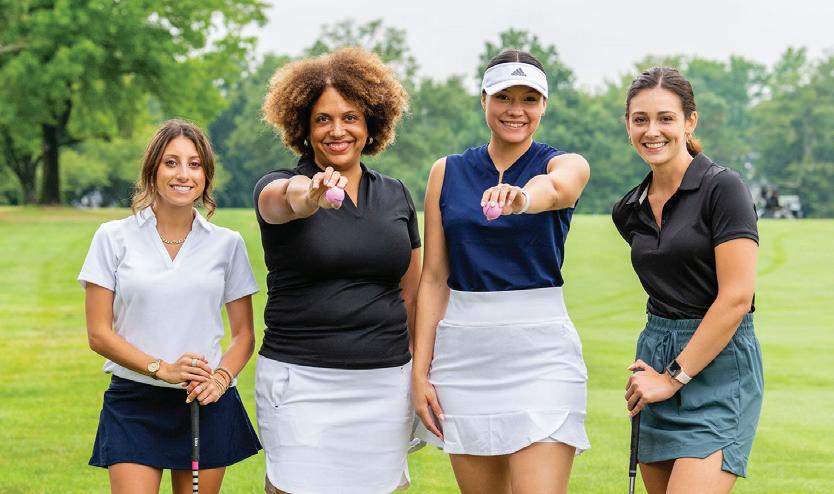
RWJBarnabas Health and the New Jersey Devils have teamed up to honor RWJBarnabas Health’s 38,000 dedicated healthcare workers across New Jersey who, after more than two years in a global pandemic, continue to provide essential and dedicated care to patients.
Running with the Devils comprises three events: a 5K Race, a Wellness Walk and a Virtual 5K Run & Walk. The virtual event runs from October 1 to October 30; the race and walk will take place on October 30. The self-paced Wellness Walk will take place within Essex County’s Turtle Back Zoo; the 5K Race will take place on a USATF-Certified Course, down Cherry Lane and the scenic reservoir at the South Mountain Recreation Complex. One hundred percent of the proceeds will be used to support RWJBarnabas Healthcare Heroes in their efforts to protect and build healthier communities. To register and for more information on fundraising incentives (including Devils tickets and signed merchandise), entrance fees, starting times and awards, visit https://runsignup.com/Race/NJ/WestOrange/RunningwiththeDevils2.
 L-R: Samantha Daggett (Insight Global Health), Chandar Potter (Zurich North America), Sydney Taps (Insight Global Health), Melanie Ross (Zurich North America)
Everett Duchin’s family pose with some of the many staff members who took care of him.
PHOTO
L-R: Samantha Daggett (Insight Global Health), Chandar Potter (Zurich North America), Sydney Taps (Insight Global Health), Melanie Ross (Zurich North America)
Everett Duchin’s family pose with some of the many staff members who took care of him.
PHOTO
CREDIT: J MARTIN PRODUCTION
DEVILS’ ADVOCATES Healthy Together | 22 | Fall 2022
ADULT BEREAVEMENT SUPPORT
GROUP: First Wednesday of each month at 1:30 p.m. at RWJ Rahway Fitness & Wellness Center, 2120 Lamberts Mill Road, Scotch Plains. Registration required. Call 732.499.6193
ALL RECOVERY MEETINGS are for everyone who supports recovery. Find a full calendar of All Recovery meetings that you can join online or by phone at www.rwjbh.org/allrecovery
BREAST CANCER SUPPORT
GROUP: Virtual meeting on the first Tuesday of each month from 7 to 8:30 p.m. and on the first Wednesday of each month from 5:30 to 7 p.m.
CAREGIVER SUPPORT:
Virtual meeting on the first Wednesday of each month from 7 to 8:30 p.m.
DIABETES SUPPORT: In-person support group from 6 to 7 p.m., first Thursday of the month, Conference Room 3 at RWJUH Rahway, 865 Stone Street, Rahway.
FIBROMYALGIA SUPPORT: Virtual meeting on the first Thursday of each month from 5:30 to 7 p.m. or 7 to 8:30 p.m.
LUNG DISEASE SUPPORT GROUP:
For people with COPD, interstitial lung disease, pulmonary fibrosis or breathing problems related to COVID-19. The group meets virtually on the first Friday of every month from 3:30 to 4:30 p.m. This group offers both support and education and is professionally facilitated. The program is free, but registration is required. To register or for more information, call 732.499.6193
SPOUSAL BEREAVEMENT GROUP:
Wednesdays at 10:30 a.m. Eightweek session that meets in person at the RWJUH Rahway Fitness & Wellness Center, 2120 Lamberts Mill Road, Scotch Plains. To find out when the next session begins, call 732.499.6193 .
RWJUH Rahway Is Here for You
When in-person meetings can’t happen,
RWJ RAHWAY FITNESS & WELLNESS CENTER
still help.
is
WE’RE BACK IN THE KITCHEN! HEALTHY COOKING DEMONSTRATIONS
• October 25: Soups & Stews
• November 15: Healthy Harvest Sides
• December 20: Let’s Get Festive!
6 p.m. to 7:30 p.m. at the RWJUH Rahway Fitness & Wellness Center, 2120 Lamberts Mill Road. Programs feature demonstrations by Aliz Alaman, RDN, CDE. We provide recipes and samples to taste. Please alert us of food allergies. Seating is limited and masking is required. Registration is required; call 732.499.6193
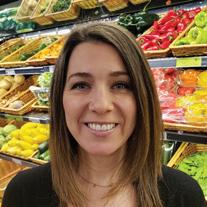
WEIGHT LOSS SURGERY SUPPORT
Get started on a path to better health with weight loss surgery. Virtual and in-person seminars and support groups are available. Anish Nihalani, MD, Medical Director of the Surgical Weight Loss Program, is also available for consultations.
Weight loss seminars are at 6:30 p.m. and support groups are at 5:30 p.m. on these dates:
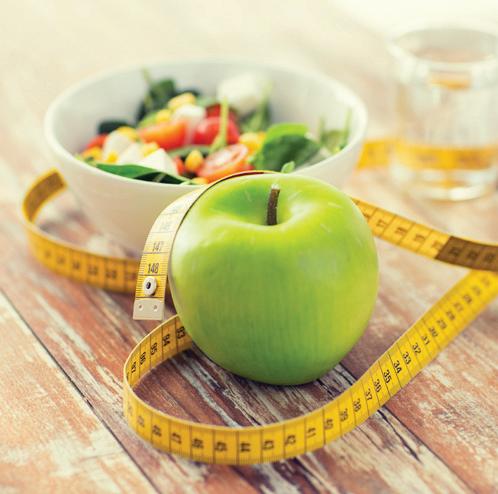
• October 27
• November 17
• December 15
To register, for a support group or seminar or to request a consultation, call the program at 732.499.6300.
QUITTING SMOKING OR VAPING STARTS WITH A CALL.
Free program with all the tools you need to quit. CALL 833.795.QUIT (7848).
NAMI (NATIONAL ALLIANCE ON MENTAL ILLNESS) OF UNION COUNTY
THE VIRUSES WE FACE: MONKEYPOX, COVID, FLU, POLIO
Wednesday, October 26 at 6 p.m. Infectious Disease Specialist Juan Baez, MD

• FAMILY SUPPORT GROUP: Virtual meeting, third Tuesday of the month, 7 to 8:30 p.m. Are you feeling stressed and alone in trying to cope with the effects of a loved one’s mental illness? This is a peer support group led by trained facilitators for all families and caregivers of people with a mental illness. To register, email Denise at namiunioncounty@yahoo.com with your name, town and phone number.
DIABETES: THE GOAL IS CONTROL
RWJUH Rahway, together with the Gateway Family YMCA Rahway Branch, has a FREE six-week program that will show you how to control your blood sugar.
Winter 2022 classes will be held on Thursdays, November 3 until December 15, 11:30 a.m. to 1 p.m., at the Gateway Family YMCA-Rahway Branch, 1564 Irving Street, Rahway. To register, call 732.388.0057
• SPEAKER PRESENTATIONS: Fourth Tuesday of the month, 7:30 to 9 p.m., for anyone who wants to find out about mental illnesses, treatments and community resources. Professional speakers on relevant topics with Q&A to follow. To register, go to www.naminj.org/support/affiliates/union for upcoming events.
• FAMILY TO FAMILY: NAMI offers a program in which experienced family members help others learn more about the mental illness of their loved one, how to get through crisis periods and practice selfcare, and explore recovery, advocacy and better communication. Eight-week course, offered one night a week. If interested, contact patroman2@aol.com
COMMUNITY CALENDAR
we can
RWJUH Rahway
ready to meet you virtually for a telemedicine appointment, consultation or support. Below are some of our virtual as well as inperson support groups and educational programs. If you have a healthcare need or would like an email invitation to these professionally run meetings, call Community Education at 732.499.6193.
Robert Wood Johnson University Hospital Rahway | RWJBH.ORG/RAHWAY | 23
You don’t feel a lump, swelling or tenderness.


still need a mammogram.
At RWJBarnabas Health, together with Rutgers Cancer Institute of New Jersey, the state’s only National Cancer Institute-designated Comprehensive Cancer Center, we o er the latest in comprehensive breast health services including mammograms, 3D mammograms, breast MRI, genetic testing, breast surgery and more — like peace of mind.
with breast health centers conveniently located throughout New Jersey, finding us


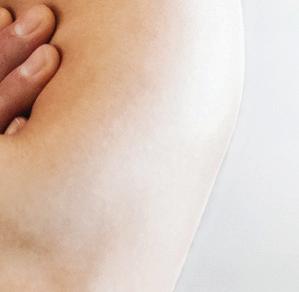
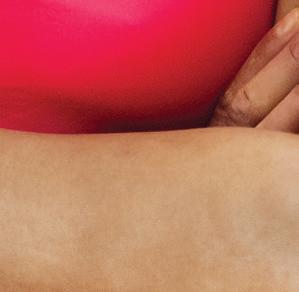
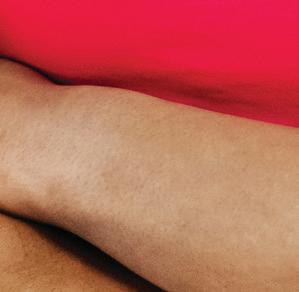

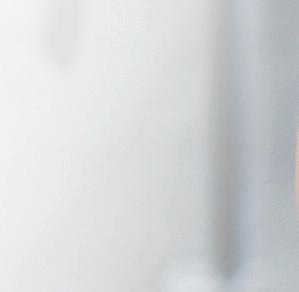

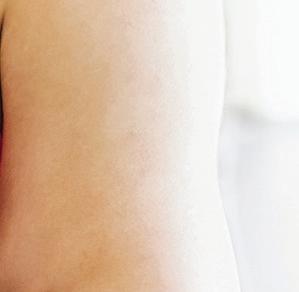

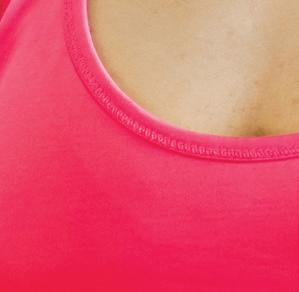





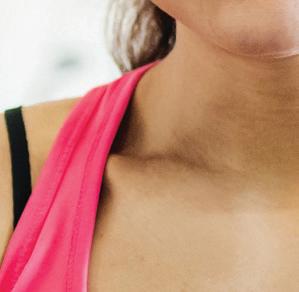
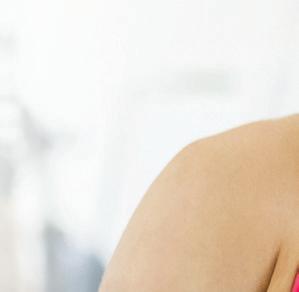



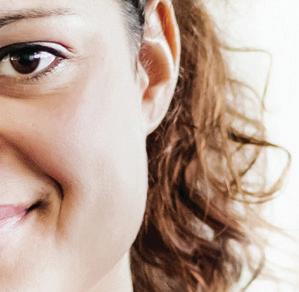
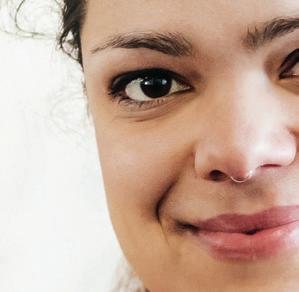




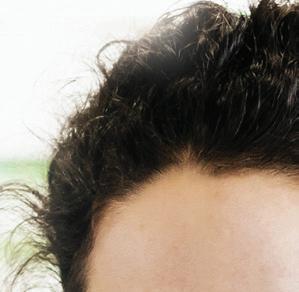






Let’s









NON PROFIT U.S. POSTAGE PAID Harrisburg, PA Permit #324 865 Stone St., Rahway, NJ 07065
And
is simple, too. Schedule your mammogram at rwjbh.org/mammo
You
NCI Designated Comprehensive Cancer Center
beat breast cancer together.










































































 L-R: Samantha Daggett (Insight Global Health), Chandar Potter (Zurich North America), Sydney Taps (Insight Global Health), Melanie Ross (Zurich North America)
Everett Duchin’s family pose with some of the many staff members who took care of him.
PHOTO
L-R: Samantha Daggett (Insight Global Health), Chandar Potter (Zurich North America), Sydney Taps (Insight Global Health), Melanie Ross (Zurich North America)
Everett Duchin’s family pose with some of the many staff members who took care of him.
PHOTO
















































